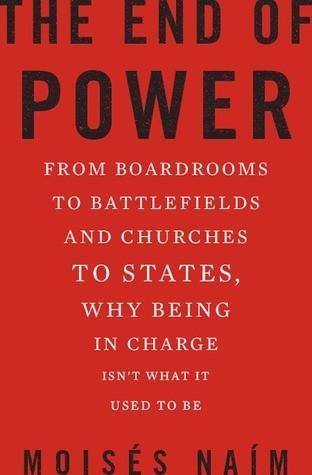
The End of Power: From Boardrooms to Battlefields and Churches to States, Why Being in Charge Isn’t What It Used to Be
by
Moises Naim
Published 5 Mar 2013
Some giant corporations or institutions prove vulnerable to nimble new competitors; others seem to ward them off as if swatting flies. It will never be possible to predict every shift in power. The collapse of the Soviet Union, the eruption of the Arab Spring, the decline of erstwhile newspaper giants like the Washington Post, and the sudden emergence of Twitter as an information provider attest to the impossibility of knowing what power shifts await around the corner. THE IMPORTANCE OF BARRIERS TO POWER Although predicting specific power shifts is a fool’s errand, understanding the trends that alter either the distribution of power or its very nature is not.
…
The Internet and other tools are undeniably transforming politics, activism, business, and, of course, power. But too often, this fundamental role is exaggerated and misunderstood. New information technologies are tools—and to have an impact, tools need users, who in turn need goals, direction, and motivation. Facebook, Twitter, and text messages were fundamental in empowering the protesters in the Arab Spring. But the protesters and the circumstances that motivated them to take to the streets are driven by circumstances at home and abroad that have nothing to do with the new information tools at their disposal. Millions of people participated in the demonstrations that brought down Hosni Mubarak in Egypt—but at its peak, the Facebook page credited with helping to spur protests there had only 350,000 members.
…
Indeed, a recent study of Twitter traffic during the Egyptian and Libyan uprisings found that more than 75 percent of people who clicked on embedded Twitter links related to those struggles were from outside the Arab world.17 Another study, by the US Institute of Peace, which also examined patterns of Twitter use during the Arab Spring, concluded that new media “did not appear to play a significant role in either in-country collective action or regional diffusion” of the uprising.18 First and foremost among the drivers of protest was the demographic reality of young people in countries like Tunisia, Egypt, and Syria—people who are healthier and better-educated than ever before but also unemployed and deeply frustrated.
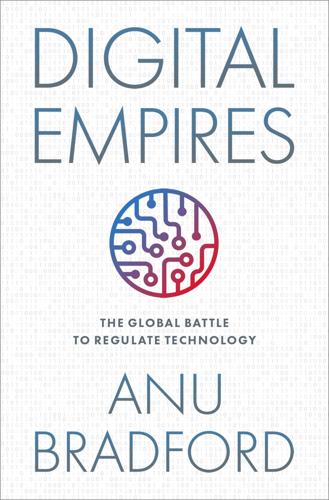
Digital Empires: The Global Battle to Regulate Technology
by
Anu Bradford
Published 25 Sep 2023
(July 13, 2012), https://sgp.fas.org/crs/row/R42601.pdf. 87.Press Release, Hillary Clinton, Sec. of State, Remarks on Internet Freedom (Jan. 21, 2010), https://2009-2017.state.gov/secretary/20092013clinton/rm/2010/01/135519.htm. 88.Id. 89.Goldsmith, supra note 1. 90.Jessi Hempel, Social Media Made the Arab Spring But Couldn’t Save It, Wired (Jan. 26, 2016), https://www.wired.com/2016/01/social-media-made-the-arab-spring-but-couldnt-save-it/. 91.Carol Huang, Facebook and Twitter Key to Arab Spring Uprisings: Report, UAE (June 5, 2011), https://www.thenationalnews.com/uae/facebook-and-twitter-key-to-arab-spring-uprisings-report-1.428773/. 92.Ron Nixon, U.S. Groups Helped Nurture Arab Uprisings, N.Y. Times (Apr. 14, 2011), https://www.nytimes.com/2011/04/15/world/15aid.html. 93.Benjamin Wagner, Kirsten Gollatz, & Andrea Calderaro, Internet & Human Rights in Foreign Policy: Comparing Narratives in the US and EU Internet Governance Agenda, Cadmus (2014), https://cadmus.eui.eu/handle/1814/32433. 94.Current U.S.
…
American Civil Liberties Union, 46 Republican Party, 56, 272 research and development AI, 153–54, 197 Chinese students and researchers, 196–97 Defense Advanced Research Project Agency (DARPA) (US), 59 semiconductor, 59–60 RFE/RL (Radio Free Europe and Radio Liberty), 270 Rhodium Group, 93–94 Rice, Condoleeza, 271 rights to be forgotten, 112–13, 339–40 California Privacy Rights Act, 54–55 Charter of Fundamental Rights of the European Union (EU Charter), 110–11, 112, 116 cyber civil rights, 53–54 digital, 324–59 digital society of rights and values, 25 European, 324–59 European Convention of Human Rights, 112 globalization of, 324–59 of Muslims, 156–57 to privacy, 4, 111–13 safeguarding, 110–18 rights-driven regulations criticism of, 136–45 European model, 6–10, 16–20, 21–22, 23–24, 25, 28–29, 57–63, 91–94, 105–45, 221–54, 324–59, 361, 366–69 global influence, 16–20, 324–59 vs. market-driven regulations, 221–54 Roberts, Margaret E., 81–82, 83 Rohingya, 17–18, 280, 283 Romania, 144 Roskomnadzor, 309, 311–12 Ross, Wilbur, 226 Rozenshtein, Alan, 61–62 Rubio, Marco, 196–97 Rudd, Amber, 281–82 Rules on Counteracting Unjustified Extra-territorial Application of Foreign Legislation and Other Measures (Blocking Rules) (China), 200, 202 Russel, Stuart, 66–67 Russia 5G networks, 312 antitrust regulation, 344–45 battles with tech companies, 13–14, 163 BRICS Leaders Declaration, 303 content controls, 180–81 cyberattacks, 134 data localization requirements, 330–31 demands on Meta, 338 digital authoritarianism, 135, 308–13 Digital Divide projects, 268 disinformation campaigns, 120–21 Federal Security Service, 312–13 hate speech law, 140–41 and international code of conduct for information security, 303 internet sovereignty, 309–10 invasion of Ukraine, 13–14, 62, 163, 233–34, 253, 312–13, 384, 392 “law against Apple,” 312 propaganda, 308, 312–13 regulations, 308–13 relations with China, 310–13 sanctions against, 163, 197–98 search engine market, 260–61 social media restrictions, 284 Sovereign Internet Law, 308–9 surveillance technology, 312 tech diplomacy, 302 techno-autocracy, 389–90 US–Russia Cold War, 217–18, 270 Yarovaya law, 309 Russia Today, 312–13 Russian Antimonopoly Service (FAS), 344–45 Russian apps, 312 Russian hackers, 67 safe cities, 296–97, 300–1, 314–16. see also smart cities Safe Harbor data transfer agreement, 111, 229–30 Safe Philippines project, 300 SAMR (State Administration for Market Regulation) (China), 204 Samsung, 215–16, 261 sanctions Anti-Foreign Sanctions Law (AFSL) (China), 202–3 against China, 185–86, 197–99, 218–19 against Chinese firms, 102–3, 166–67 cyber sanctions, 206–7 to deter malicious cyber activity, 134, 197–99 against Russia, 163, 197–98 against Russian oligarchs, 309–10 Santiago, Chile, 263 SAP, 108, 136–37 Sasse, Ben, 192–93 Saudi Arabia, 270–71, 308, 316, 389–90 5G networks, 193–94 China’s influence on, 299–300 Saverin, Eduardo, 374–75 SCCs (standard contractual clauses), 231–32 Schmidt, Eric, 75, 208, 274–75, 389–90 Schmit, Nicolas, 128 Schneir, Bruce, 101 Schrems, 229–30 Schrems, Max, 230–32, 235–36 Schrems II, 230–34 Schwab, Andreas, 249 Schwartz, Paul, 325 science and technology diplomats, 302 search engines, 153–54. see also specific technologies Secure Campus Act (US), 196–97 Secure Equipment Act (US), 193 Securities and Exchange Commission (SEC) (US), 14–15, 174–75, 176–78 security cybersecurity, 60, 62, 173 Cybersecurity Law (China), 79–80, 94–95 Cybersecurity Review Measures (China), 94–95 Cyberspace Administration of China (CAC), 175 Data Security Law (DSL) (China), 79–80, 94–95, 175 international code of conduct for information security, 303 national, 66–67, 164–78 National Security Law (China), 79–80 Prague Proposals, 320–21 societal, 85 self-regulation, 39–40, 47–48, 63–64 self-sufficiency, 73–75, 199–211, 217–18 Semiconductor Industry Association (US), 218 semiconductors advanced, 217–18 global market, 74–75, 134–35, 215–16 research and development, 59–60 US export controls, 190 US–China tech war, 211 Senegal, 285–86 Senkaku Islands (Diaoyu Islands), 156–57 SenseTime, 85, 189–90 Sequoia Capital, 373 Serbia, 301 sex trafficking, 51–52, 53–55 Shanghai Cooperation Organization, 303 Sharp Eyes initiative (China), 4–5, 86 Shein, 165 Shenzhen, China, 35 Sherry, Linda, 355–56 Shu Yinbiao, 305 Sichuan, China, 314 Siemens, 263, 321 Siemens/Alstom, 248 Silicon Allee (Berlin), 263 Silicon Lagoon (Lagos), 263 Silicon Roundabout (London), 263 Silicon Savannah (Nairobi), 263 Silicon Valley, 7–8, 33–35, 42, 92–93, 263, 283–84, 374 Silicon Wadi (Tel-Aviv), 263 Singapore, 266–67, 322 Singapore-New Zealand-Chile Digital Economy Partnership Agreement, 322 Siri (Apple), 59 Slack, 76–77 Small Business Administration (SBA), 59 smart cities AI cities, 208–9 on Chinese Digital Silk Road, 195, 291–92, 296–97, 298, 305, 312, 314–15, 316–17 surveillance systems, 85–86, 296, 312, 316–17 technical standards, 305, 316–17 smartphones, 70–71, 215–16 Smith, Brad, 62, 138 Smith, Christopher, 276 Snap Inc., 76–77, 382–83 Snapchat, 116–17, 280–81 Snowden, Edward, 4–5, 7–8, 61, 198–99, 226–27, 229–30, 284–85, 287–88, 318–19 social credit, 8–9, 87–88 social fairness, 124 social media, 41, 64–65, 215–16 Chinese platforms, 80, 82–83, 154–55, 166–67, 293, 312–13 disinformation campaigns, 280–81 role in Brexit, 280 role in January 6, 2021 attack on the US Capitol, 141 role in terrorist attacks, 281–82 US platforms, 280–83 social media companies, 280–83, 362–63. see also specific companies by name Social Principles of Human-Centric AI (Social Principles) (Japan), 349–50 social stability, 70 societal security, 85 Softbank, 176 software developers, 73 Soho China, 204 SolarWinds hack, 60 Sonos, 330 Sony Ericsson, 263 SoundCloud, 76–77 South Africa, 303 South America, 301. see also specific countries by name South and South-East Asia, 260, 300. see also specific countries by name South Korea, 211, 333–34, 337, 344–45 Anti-Google Law (Telecommunications Business Act 31), 347 Digital Divide projects, 268 techno-democracy, 389–90 Sovereign Internet Law (Russia), 308–9 sovereign RuNet, 308–9 sovereignty data, 297 digital, 132–33, 135, 186, 215, 245–46, 354 internet, 288–89, 309–10 technological, 132–33, 180–81, 234 Spain antitrust investigations, 345 data privacy law, 333–34 digital policy, 142 digital services tax (DST), 126–27, 239, 242 Google News withdrawal from, 122–23 privacy culture, 143–44 protections for platform workers, 128–29 restrictions on Chinese tech companies, 193–94 smart cities, 296–97 surveillance practices, 102, 143–44 speech freedom of, 41–42, 46–47, 116–18 hate speech, 281 Hate Speech Code (Code of Conduct on Countering Illegal Hate Speech Online) (EU), 116–17 hate speech rules, 9–10, 55–56, 116–17, 140–41 NetzDG law (Germany), 140–41 splinternet, 16, 179–80, 181, 388 Spotify, 238 Sputnik, 312–13 spyware, 143–44, 316 standard contractual clauses (SCCs), 231–32 standards China Standards 2035 plan, 304 Chinese, 291 Chinese influence on, 302–8, 316–17 data privacy, 324–25 digital trust, 320–21 IPv6+ (proposed), 307 New IP (proposed), 306–7 for smart cities, 316–17 technical, 291, 302–8, 316–17 Stanford University, 33–34, 59, 210–11 Stasi (East German Ministry for State Security), 111–12 State Administration for Market Regulation (SAMR) (China), 204 state aid, 243–44 state control Chinese state-driven regulatory model, 6–10, 16–20, 21, 23–25, 28–29, 57–63, 69–104, 108, 131–36, 364–66, 391–92 criticism of, 99–104 global consequences, 16–20 vs. market-driven regulations, 36–40 Russian state-driven regulatory model, 308–13 with surveillance, 85–88 with tech companies, 88–91 Stop Online Piracy Act (SOPA) (US), 48–49 #StopHateForProfit boycott, 384 strategic autonomy, 132–34, 186 Stratton Oakmont v Prodigy, 43–44 subsidies, 134–35 Sudan, 297–98 Sugon, 161–62 Sullivan, Jake, 209, 251–52, 351 Summit of Democracy, 390 Sun Jiandong, 80 Sunstein, Cass, 64–65 surveillance capitalism, 4, 66, 135–36, 368–69 surveillance imperialism, 17 surveillance technology(-ies) AI-driven, 85, 293 Chinese, 77–91, 297–98, 314–20 citizen response, 88–91 Commerce Control List (US), 188–89 and crime, 85, 296–97, 301, 314 cybersurveillance, 134 digital, 4–5, 61, 85–88, 99–100, 170 ECU-911, 301 globalization of, 314–20 government, 4–5, 17, 60–62 Safe Philippines project, 300 Snowden revelations, 4–5, 7–8, 61, 198–99, 226–27, 229–30, 284–85, 287–88, 318–19 standards for, 306 transatlantic data transfers, 226–36 Susquehanna, 93 Sweden, 142, 272–73, 319–20, 374, 389 Switzerland, 333–34 Syria, 3, 270–71, 274 T-12 group, 389 Taiwan, 78–79, 80, 211, 216–17, 319–20 Tajikistan, 303 Taliban, 274, 282 Tanzania, 282–83, 299 Tauzin, William, 44–45 taxation bit taxes, 286 Data Mining Tax (New York), 239–40 digital services taxes (DSTs), 126–28, 142–43, 224, 236–41, 352 global deal, 240–42 national regimes, 142–43 Tech-10, 389–90 tech companies. see also specific companies by name acquisitions, 50–51 AI developments, 208–9 battles among, 382 Chinese, 70–71, 93–94, 98–99, 102–3, 151–52, 164–79, 189–90, 192–96, 208–9, 215–16, 262–63 Clean Telcos, 320–21 concern with the Brussels effect, 353–59 content moderation, 338–39 countermeasures against the Brussels effect, 356–59 custodians of the internet, 141 data collection from, 61 data privacy policies, 326–32 European, 108, 136–37 global influence, 259–65 global sales, 215–16 government battles, 13–16, 25–26, 61–62, 152–64, 205, 222, 376–85 hardware companies, 73 internet companies, 70–71 large, 377–78, 381–85 largest public internet companies, 70–71 liberation of, 42–45 new governors, 259–60 political influence, 55–56 private power, 20 regulation of, 377–78. see also regulation(s) Silicon Valley replicas, 263 social media companies, 166–67 state-controlled surveillance with, 88–91 terms of service, 338 US, 14–15, 108, 149–50, 151, 152–64, 205, 222, 257–58, 259–65 TechAmerica Europe, 357 technical standards, 291, 302–8 techno-autocracy(-ies), 22, 292, 388–93 techno-democracy(-ies), 22, 320, 388–93 techno-libertarianism, 34–35, 38–39, 257–89 techno-nationalism, 75–76, 184–85, 211, 212–15, 224, 249 techno-optimism, 33, 48, 122 technological self-sufficiency, 199–211, 217–18 technological sovereignty, 132–33, 180–81, 234 technology(-ies) 5G network, 133–34 backlash against, 55 censorship, 77–91 Chinese, 21, 72–75, 77–91, 92–93 chokepoint, 206 critical assets, 192–96 “Declaration for the Future of the Internet,” 390 decoupling from consumer markets, 178–82, 388 deep tech, 206–7 facial recognition, 85, 138, 298–99 geoblocking, 338, 339 hard tech, 96–97 regulation of, 1–29, 360–93. see also regulation(s) science and technology diplomats, 302 smart city, 85, 296–97 standards for, 305 surveillance, 77–91 US export limitations on, 188–92 US–China tech war, 10–11, 96–97, 103, 151–52, 164, 179–80, 183–220, 295, 361, 366, 386, 387 technopolarity, 259–60 Tel-Aviv, Israel, 263 telecommunications 4G networks, 297–98 5G networks, 133–34, 187–88, 190, 192–94, 293, 301, 320–21 Chinese tech exports, 293 network equipment, 70–71, 194, 215–16 security guidelines, 320–21 Telecommunications Act (US), 43–44 Telecommunications Business Act 31 (Anti-Google Law) (South Korea), 347 Telegram, 285–86, 311–12 Tencent, 108, 154 antitrust blockade, 347–48 Chinese state support, 8–9, 71, 94, 391–92 DSR operations, 294–95 global influence, 70–71, 73, 208–9, 293 global revenues, 262–63 social responsibility programs, 98–99 US funding, 93–94 Teradyne, 218 terrorist attacks, 61–62, 281–82 terrorist propaganda, 3, 117 Tesla, 142–43, 215–16 Texas, 56, 336 TFDPA (Act on Improvement of Transparency and Fairness in Trading on Specified Digital Platforms) (Japan), 346–47 3rd Generation Partnership Project (3GPP), 305–6 Thomson, Derek, 101 Thucydides Trap, 216–17 Tiananmen Square protests (1989), 76–77, 78–79 Tibet, 78–79, 153–54 Tigrayans, 283 TikTok battles with governments, 14–15, 151–52, 169–70, 193–94 Code of Conduct on Countering Illegal Hate Speech Online (Hate Speech Code), 116–17 content moderation, 341 Disinformation Code, 120 global influence, 70–71, 100, 215–16, 260, 293–94 Indian ban on, 169–70, 193–94 relations with Meta, 170 Russian fines, 309–10 UK Parliament account, 169–70 US attempts to ban, 102–3, 151–52, 165–72, 200–1 US presence, 165, 178 Toomey, Patrick, 236 trade Chinese exports, 290–323 digital trade agreements, 322–23 Export Administration Regulations (EAR) (US), 189–90 Export Control Reform Act (ECRA) (US), 188–89 transatlantic war, 236–42 US export controls, 15, 188–92, 218–19, 366 US–China trade war, 97, 185–86, 188–92, 200 Trade Act (US), 238–39 Trade and Technology Council (TTC) (US-EU), 252–54 Trans-Pacific Partnership, 213 transatlantic data transfers, 226–36 battles over, 222–23, 228–31 future directions, 231–36 standard contractual clauses (SCCs), 231–32 transatlantic regulatory battles, 26–27, 221–54 Transatlantic Trade and Investment Partnership, 253–54, 359 Transatlantic Trade and Technology Council, 359 transatlantic trade war, 236–42 Treaty of the European Union, 110, 118 Trip Advisor, 358 Truex, Rody, 197 Trump, Donald America First policy, 213 complaints against EU antitrust policy, 245 disinformation propagation, 277–78 efforts to ban Chinese tech companies, 102–3, 166–68 efforts to discipline social media companies, 49–50 efforts to restrict entry of individuals from Muslim-majority countries, 156–57 internet freedom agenda, 276–77 and Malofeev, 309–10 presidential campaign (2016), 368–69 suspension from social media, 384 transatlantic trade war, 238–39 US–China tech war, 184–85, 192–93, 208, 213, 218 Tsargrad TV (YouTube channel), 309–10 TTC (Trade and Technology Council) (US-EU), 252–54 Tumblr, 76–77 Tunisia, 272–74 Turkey, 338, 344–45, 374 5G networks, 193–94 digital services taxes (DSTs), 352 21Vianet Group, 154 Twitch, 76–77 Twitter Apple’s new anti-tracking measures and, 382–83 Arab Spring posts, 272 Chinese blockade, 76–77, 78–79, 80 compliance with EU laws and regulations, 116–17, 163 content moderation, 3, 7–8, 65–66, 337–38, 341, 377–78, 384–85 disinformation campaigns, 280–81 Disinformation Code, 120 employee walkout, 384–85 European headquarters, 142–43 fact checks, 49–50, 82–83, 277 global influence, 133–34, 257–58 harmful content, 141, 282–83 Hate Speech Code, 116–17 hateful conduct, 338 propaganda on, 282–83 purchase by Musk, 105 role in Brexit, 17–18, 280 role in cyberterrorism, 284 role in spread of false information, 65 Russian blockade, 163, 309–10, 311–13 support for internet freedom, 274–75, 284 withdrawal from China, 8–9 Uber, 165 Uber drivers, 128–29 UEL (Unreliable Entities List) (China), 200–1, 218–19 Uganda, 282–83, 317–18 Ukraine battles with tech companies, 13–14 cyber defense, 62 Russian invasion of, 13–14, 62, 163, 233–34, 253, 312–13, 384, 392 unicorns, tech, 136–37 unipolar world, 386 United Arab Emirates, 193–94, 299–300 United Kingdom (UK), 337 5G networks, 301 antitrust regulation, 345–46 Brexit campaign, 17–18, 120–21, 280 Competition and Markets Authority, 345–46 content moderation, 342 data protection law, 333–34 digital policy, 142 digital services tax (DST), 126–27, 239, 242 e-commerce market, 262 G7 relations, 321–22 nonregulation principle, 266–67 Online Safety Bill (OSB), 342 Parliament, 169–70 protections for platform workers, 128–29 relations with China, 197–98 Remain campaign, 17–18 restrictions on Chinese tech companies, 193–94 tech diplomacy, 302 techno-democracy, 389–90 United Nations (UN), 111, 269, 288–89, 302–3, 307–8 United Nations Human Rights Council (UNHRC), 273 United States (US) AI regulation, 351 AI research, 210–11 Allow States and Victims to Fight Online Sex Trafficking Act (FOSTA), 51–52, 53–54, 55 America First policy, 213 American Innovation and Choice Online Act, 53–54 anti-censorship principles, 267–68, 270–76 antitrust regulation, 5, 50–51, 244–45, 345, 347–48, 363 Bankruptcy Code, 374 battles with China and EU, 11–13, 15–16, 21, 26–27, 57 battles with tech companies, 13–16, 164–78 Biden administration, 53, 168, 196, 197–98, 241, 278–79, 321 Bureau of Cyberspace and Digital Policy, 278 Bush administration, 48–49, 257, 271, 276 Chamber of Commerce, 61–62 Children’s Online Privacy Protection Act (COPPA), 44–45 China Initiative, 196–97 Chinese influence in, 301 Chinese measures against, 199–207 Chinese tech companies in, 165 CHIPS and Science Act, 59–60, 211 Clarifying Lawful Overseas Use of Data Act (CLOUD Act), 222–23 Clean Network program, 320–21 Clinton administration, 36–37, 47–48, 257, 265–70, 276 Commerce Control List, 188–89 Committee on Foreign Investment in the United States (CFIUS), 195–96 Communications Decency Act (CDA), 5, 42–47, 53–54, 56–57, 64, 132, 137–38, 265–66, 286–87, 364 criticism of, 279–89 cyber sanctions, 197–99 cybersecurity, 61–62, 67, 276–77 Data Privacy Framework, 235 data privacy law, 235, 336 “Declaration for the Future of the Internet,” 390 Defense Advanced Research Projects Agency (DARPA), 59, 209 Department of Commerce, 60, 168–69, 188–89 Department of Defense, 59, 209 Department of Homeland Security, 60 Department of Justice (DOJ), 46–47, 50–51, 53–54, 196, 348, 363 Department of State, 271–75, 276–77, 278, 284 Department of the Treasury, 245 Development Initiative, 268 Digital Millennium Copyright Act, 44–45 digital policy, 57, 213, 250–54 digital services taxes (DSTs), 237, 239–40 digital trade agreements, 322 e-commerce market, 262 Entity List, 189–90, 200–1, 218–19 Executive branch, 47–50 Executive Order on Enhancing Safeguards for United States Signals Intelligence Activities, 235–36 Export Administration Regulations (EAR), 189–90 Export Control Reform Act (ECRA), 188–89 export controls, 15, 188–92, 218–19, 366 Federal Bureau of Investigation (FBI), 61–62, 196, 236 Federal Communications Commission (FCC), 44, 193 Federal Trade Commission (FTC), 50–51, 53–54, 139–40, 348, 363 Foreign Investment Risk Review Modernization Act (FIRRMA), 195 foreign policy, 40–41, 253–54, 272, 276–77, 278, 284 foreign students, 375 “A Framework for Global Electronic Commerce” (Framework), 48, 266–67, 286 G7 relations, 321–22 global influence, 16–20, 27, 257–89 Holding Foreign Companies Accountable Act, 96, 174 immigrants, 197, 374–75 imperialism, 17, 232 industrial policy, 59–60 Innovation and Competition Act, 190–91 International Strategy for Cyberspace, 48–49 Internet Freedom Grants, 273–74 internet freedom initiatives, 27, 257, 265–79, 284–87 Internet Protection Act, 44–45 Internet Regulatory Freedom Act, 44–45 Jordan Free Trade Agreement, 267–68 market-driven ethos, 42–52 measures against China, 187–99 Meeting the China Challenge Act, 190–91 National Science Foundation, 59 national security, 49–50, 66–67, 164–78, 233–34 National Security Agency (NSA), 4–5, 47–48, 61–62, 101, 198–99, 229–30, 318–19 National Security Commission on Artificial Intelligence, 99–100, 208, 209 National Security Council (NSC), 245–46 “National Strategy to Secure Cyberspace,” 48–49 nonregulation principle, 265–70 Obama administration, 48–49, 51, 54–55, 61–62, 257, 272, 276 Online Freedom and Viewpoint Diversity Act, 277 Open Technology Fund, 276–77 political process, 55–56 presidential election (2020), 277–78 privacy law, 5, 38, 333 Privacy Shield, 19, 230–33 Public Company Accounting and Oversight Board (PCAOB), 177–78 public opinion, 362–64 regulations, 6–10, 21–22, 23–24, 26–27, 28–29, 33–68, 91–94, 106–7, 131–36, 221–54, 361–64, 366–69 restrictions on Chinese tech companies, 165–78, 195, 388 Safe Harbor data transfer agreement with EU, 111, 229–30 sanctions against China, 102–3, 185–86, 197–99, 218–19 sanctions against Russian oligarchs, 309–10 scientific community, 196–97 Secure Campus Act, 196–97 Secure Equipment Act, 193 Securities and Exchange Commission (SEC), 14–15, 174–75, 176–78 self-sufficiency, 217–18 semiconductor funding, 211 Small Business Administration (SBA), 59 Stop Online Piracy Act (SOPA), 48–49 subsidies, 217–18 surveillance operations, 4–5, 7–8, 61–62, 101, 226–27, 229–30, 284–85, 287–88, 318–19 tech diplomacy, 302 techno-democracy, 389–90 techno-libertarianism, 257–89 technological leadership, 197 Telecommunications Act, 43–44 Trade Act, 238–39 Trade and Technology Council (TTC), 252–54 transatlantic regulatory battles, 26–27, 221–54 transatlantic trade relations, 236–40 Trump administration, 49–50, 168–69, 171, 185, 196–97, 200–1, 213, 228, 241, 253–54, 276–77, 320–21 universities, 375 US–China relations, 74–75, 162–63, 171, 323 US–China tech war, 10–11, 96–97, 103, 151–52, 164, 179–80, 183–220, 295, 361, 366, 386, 387 US–China trade war, 97, 185–86, 200 US–EU regulatory battles, 221–54, 359, 361–69, 387 US–EU relations, 127 US–Japan Digital Trade Agreement, 322 US–Russia Cold War, 217–18, 270 United States Capitol: January 6, 2021 attack on, 7–8, 66, 100, 141, 251, 286, 363–64, 367–68 United States Constitution, 41–42, 46–47, 50, 337 United States District Court for the District of Columbia (DDC), 168–69 United States House of Representatives, 102, 277 United States Overseas Private Investment Corporation, 268 United States Senate, 99–100 United States Supreme Court, 50 Citizens United, 355 FBI v Fazaga, 236 Packingham v.
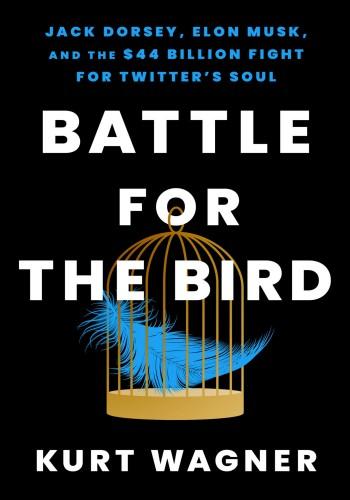
Battle for the Bird: Jack Dorsey, Elon Musk, and the $44 Billion Fight for Twitter's Soul
by
Kurt Wagner
Published 20 Feb 2024
It quickly became popular with politicians, journalists, and celebrities looking for a direct line to communicate with their fans. Barack Obama had an account. So did Taylor Swift, Ashton Kutcher, and Oprah Winfrey. In 2009, a NASA astronaut sent a tweet from the International Space Station. Just few years later, Twitter would play a key role in helping protesters organize during the Arab Spring. Despite Twitter’s global influence, the service made almost no money. The year Costolo took over, Twitter had just $28 million in revenue, a figure he was tasked with growing considerably. He largely succeeded, taking Twitter public in late 2013 and making many of its executives, investors, and early employees very rich.
…
TV networks displayed them during news reports, newspapers and magazines put them into print, and radio broadcasters read them over the airwaves. If it happened on Twitter, it typically found its way to the masses. For years Twitter punched above its weight, spurring seismic shifts in culture and politics. It was a powerful source of news during uprisings in the Middle East, known as the “Arab Spring,” and helped spur cultural movements such as #BlackLivesMatter and #MeToo. Twitter was a megaphone for the rich and powerful and a connective tissue between world leaders and their constituents. From 2017 until 2021, Twitter delivered a daily stream of consciousness from a sitting U.S. president, a live, digital journal published every day for the entire world to read.
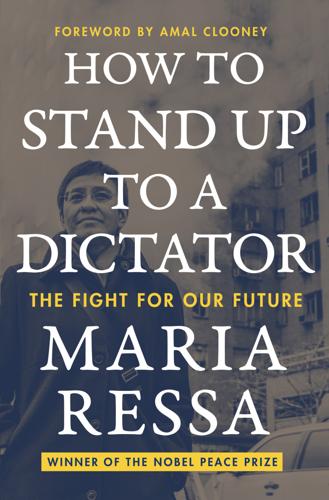
How to Stand Up to a Dictator
by
Maria Ressa
Published 19 Oct 2022
Ressa, “The Internet and New Media: Tools for Countering Extremism and Building Community Resilience,” May 1, 2013, https://doi.org/10.1142/9781908977540_0010. 7.Much has been written and said about this. See, e.g., William Saletan, “Springtime for Twitter: Is the Internet Driving the Revolutions of the Arab Spring?,” Slate, July 18, 2011, http://www.slate.com/articles/technology/future_tense/2011/07/springtime_for_twitter.html; and D. Hill, “Op-Ed: The Arab Spring Is Not the Facebook Revolution,” Ottawa Citizen, November 16, 2011. 8.Marshall McLuhan, “The Medium Is the Message,” 1964, https://web.mit.edu/allanmc/www/mcluhan.mediummessage.pdf. 9.Suw Charman Anderson, “The Role of Dopamine in Social Media,” ComputerWeekly.Com, November 26, 2009. 10.Jack Fuller, What Is Happening to News: The Information Explosion and the Crisis in Journalism (London: University of Chicago Press, 2010), 46. 11.Suzanne Choney, “Facebook Use Can Lower Grades by 20%, Study Says,” NBC News, September 7, 2010, https://www.nbcnews.com/id/wbna39038581. 12.This rolled out in the United States to select users in August 2015.
…
In the workshop, I spoke about the possibilities I saw in the internet: the cataclysmic way it was changing the way we thought and acted.6 At that point, I saw only the positives for democracy. With my keynote presentation, I took the students to the Middle East and North Africa—Egypt, Tunisia, Bahrain, and Libya—which had just experienced the Arab Spring that year. In the West, those revolutions had triggered a debate about whether Facebook and Twitter had spawned them.7 But regardless of where the academics came down on the question, clearly the internet, and social media specifically, had been a critical factor in igniting long-standing grievances, breaking down people’s fears, enhancing their courage, and fast-tracking protests that might otherwise have taken months and years to organize.
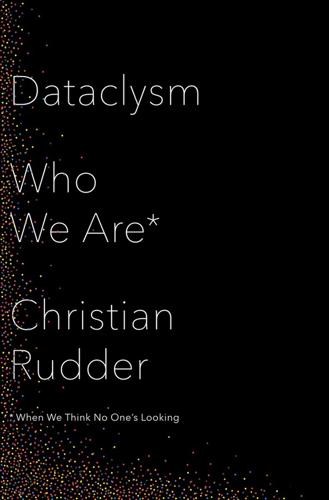
Dataclysm: Who We Are (When We Think No One's Looking)
by
Christian Rudder
Published 8 Sep 2014
And why we seem to define ourselves as much by what we hate as by what we love. 1 If Facebook ever gets tired of that minimalist f and wants a new logo, I suggest, on a blue background: two white people arguing about what another white person said about Africa. 2 It would be interesting to see if residents of countries where stoning is still used as a real-world punishment take as much joy in the digital version. 3 In Australia these tags are outfitted with transponders that notify local beachgoers when a shark is nearby. The tags communicate to us … via Twitter. 4 And, as they do online, the users even had “handles.” 5 The Arab Spring, for example, was Twitter’s debut as a tool of global importance, and the service has also facilitated protests in Guatemala, Moldova, Russia, and Ukraine. 10. Tall for an Asian 11. Ever Fallen in Love? 12. Know Your Place 13. Our Brand Could Be Your Life 14. Breadcrumbs 10.
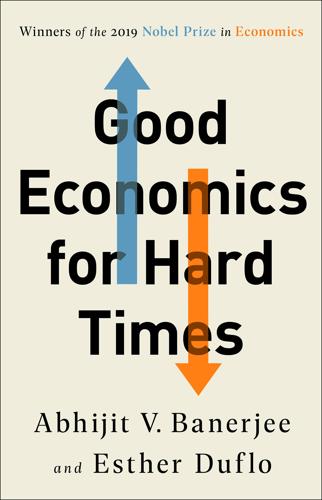
Good Economics for Hard Times: Better Answers to Our Biggest Problems
by
Abhijit V. Banerjee
and
Esther Duflo
Published 12 Nov 2019
And yet as development economists we are also keenly aware that the most remarkable fact about the last forty years is the pace of change, good and bad. The fall of communism, the rise of China, the halving and then halving again of world poverty, the explosion of inequality, the upsurge and downswing in HIV, the huge drop in infant mortality, the spread of the personal computer and the cell phone, Amazon and Alibaba, Facebook and Twitter, the Arab Spring, the spread of authoritarian nationalism and looming environmental catastrophes—we have seen them all in the last four decades. In the late 1970s, when Abhijit was taking baby steps toward becoming an economist, the Soviet Union still commanded respect, India was figuring out how to be more like it, the extreme left worshipped China, the Chinese worshipped Mao, Reagan and Thatcher were just beginning their assault on the modern welfare state, and 40 percent of the world population was in dire poverty.
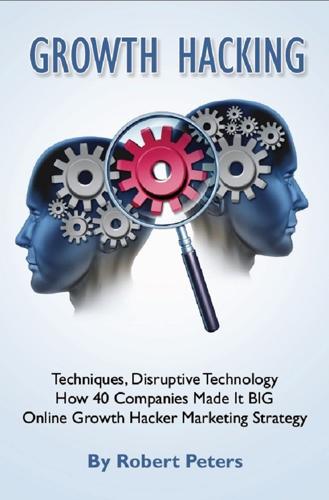
Growth Hacking Techniques, Disruptive Technology - How 40 Companies Made It BIG – Online Growth Hacker Marketing Strategy
by
Robert Peters
Published 18 May 2014
For this reason, Twitter seems to readily turn members into citizen journalists during news events and natural disasters. This lends an unusual degree of social relevance to the community that has made it even more acceptable in the eyes of mainstream culture. For instance, much of the information that reached the west from the Arab Spring democracy movement (2010-2013) did so via Twitter. Much of Twitter’s success stems from the sweet spot of having found a perfect product idea for the time that paired exceptional built-in virality with high social relevance. Couple that with ease of use, and growth was all but guaranteed. Instagram The online photo and video-sharing social network Instagram launched in October 2010 and gained 100,000 users in one week.

Hiding in Plain Sight: The Invention of Donald Trump and the Erosion of America
by
Sarah Kendzior
Published 6 Apr 2020
They envisioned a borderless world in which citizens, buoyed by technology, could expose and thereby rectify structural problems. Their enthusiasm extended to social media corporations, which were often credited for a successful demonstration instead of the actual protesters. In the West, Iran’s 2009 uprising was deemed a “Twitter Revolution” and the Arab Spring was called a “Facebook Revolution.” Western conceptions of success led to the hardship of protesters on the ground being played down. The potential threat of their corporate supporters was also poorly discerned. Social media corporations that would grow into powerful surveillance monopolies presented themselves in the early 2010s as fellow underdogs in the broader struggle against the system.
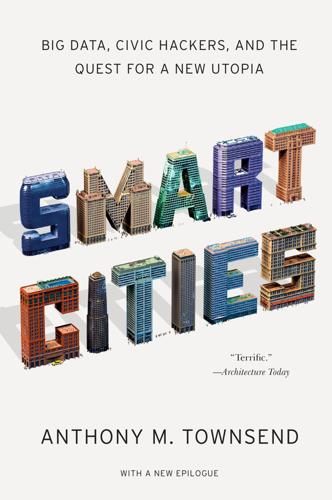
Smart Cities: Big Data, Civic Hackers, and the Quest for a New Utopia
by
Anthony M. Townsend
Published 29 Sep 2013
Crash Every city contains the DNA of its own destruction—some existing fissure that, under pressure, can erupt into conflict or cascade into collapse. Smart technologies are already fueling conflict between factions in divided cities. The extent of the role played by social media in the 2011 urban uprisings of the Arab Spring has been hotly debated. But Facebook, Twitter, and YouTube were a mere sideshow to the torrent of text messages that turned angry crowds into smart mobs, as they have done numerous times since 2001, when they summoned some 700,000 Filipinos to protests against corrupt President Joseph Estrada. These wireless channels, which provide what is for all intents and purposes a rudimentary form of telepathic communication, were so important that at the height of the Egyptian uprising authorities lobotomized Cairo by ordering a shutdown of the nation’s cellular networks.
…
R., 63 Smithsonian Magazine, 50 Snow, John, 189 social networks: cities as hubs for, 5, 159–64, 304 early days of, 123–25, 234 predictive recommendations for, 152 Songdo, South Korea, 23–31 International Business District in, 23 as largest private real-estate in history, 25 plans for TelePresence in, 49 as world’s largest experiment in urban automation, 24 Songdo U.Life, 49 Sony, 26 PlayStation Network of, 274 Portapak of, 115 Sopwith Camel, 21 Sorkin, Michael, on Archigram, 21 South by Southwest Interactive festival, 146 South Korea: broadband connectivity in, 26 tallest building in, 27 technological innovation in, 23–30 as world leader in smart-city technology, 26 SpaceShipOne, 203 Spain, 217–23 “15–M” movement in, 217 Sprint, 122 Square, 28 Standage, Tom, 44 Stanford University, 44 Starbucks, technological innovation at, 28 Steal This Book (Hoffman), 227 steam power, 5 Steenson, Molly, 21 Stockholm, 244 Stoller, Max, 150 Stoney, George, 116 Street, John, 194–95 Strickland, Eliza, 49 Strowger, Almon B., 36 structural design, innovations in, 19–30 Stuxnet, 266–69 suburbia, 101, 143 Sunlight Foundation, 238 supply-chain management, 77 surveillance, 270–76 private systems of, 275 Surveillance Camera Players, protest theater of, 13 Switzerland, 87 Symantec, 268 systems analysis: dynamics techniques in, 77, 81, 86 engineering in, 77 urban modelling in, 84–86, 88–90 Tabulating Machine Company, 61–62 Tallinn, 245 Taylor, Robert, 260 TCP (Transmission Protocol), 266 TCP/IP, 110 Teach for America, 238 TechCrunch, 151 technology: city-funded projects for, 243 disasters of, 256–58 innovation in, 107–10 overstandardization of, 249–51 repurposing of, 119–20 scaling of, 165, 201, 232, 243, 249, 313–14 as a tool of empowerment, 117–20 technology industry: limited urban understanding of, 224, 247–48 rhetoric of, 107, 278, 288, 317 “walled gardens” of, 123 TED (Technology, Entertainment, Design), 67 Tel Aviv, 233 telecom bubble, 44 Telecom Italia, 137, 161 telecommunications industry, 109–11 obstruction by, 197–98 telecommuting, 6 telegraph: city administration changed through, 5 as first urban digital communication network, 42 as fourth utility, 44 history of, 42–44, 254 industrial management changed through, 5 police use of, 5 in railroad operations, 5 Telegraphen-Bauanstalt von Siemens & Halske, 38 telemetry, 150 telephone: early history of, 5 evolution since 1970s of, 35–37 historical role in social networks, 160–61 TelePresence videoconferencing systems, 46, 49 Teoría General de la Urbanización (General Theory of Urbanization) (Cerdà), 43–44 terrorism, 270–71 Tesla, Nicola, 56 Thinking About the Unthinkable (Kahn), 277 Thomas, Martyn, 265 Tidepools, 293 Tivadar, Puskás, 254 Tokyo, Shibuya Crossing at, 34–35 Tolva, John, 64–65, 208–11, 294 To-Morrow: A Peaceful Path to Real Reform (Howard), 94 “topsight,” 70, 72, 87 Torrone, Phillip, 137–39 Total Information Awareness (TIA), 270–72 Toughbook, 127 traffic engineers, 100–101 traffic jams: impact on cities, 99–103 prediction of, 7 Trendnet, 275 Triumph of the City (Glaeser), 160 Turner, Ted, 116 Twitter, 135, 151, 154–55, 240 in Arab Spring, 12 in Moldovan “Revolution,” 169, 171 in Spain’s anti-austerity protests, 161–62, 218 Uber, 232 ubicomp (ubiquitous computing), 113 “u-chip,” 23 “u-cities,” 26 Ullman, Ellen, 256 uncertainty principle, 88 Union Square Ventures, 154 United Nations: in declaration on Internet access, 288 demographic predictions of, 1–2 Foundation of, 278 Global Pulse project of, 181–84, 191 Millennium Development Goals of, 175 Sustainable Buildings and Climate Initiative at, 163 University College (London), 85 urban dynamics, 82–83, 89 Urban Dynamics (Forrester), 76–78, 82, 86 urban expressways, 101–2 “urban informatics,” systems to process signals as, 32 “urban information architecture,” management and business of, 32 urbanism, sustainable, 83 urbanization: digital technology intersection with, 4 problems of, 8, 162 Urban Land Institute, 30 urban planning, 77–92, 311–16 with computer modelling, 81, 295–98 cybernetics in, 84 “data enthusiasm” in, 315 grassroots organizing in, 8–9, 102–5, 235 impact of cars in, 98–106 innovative potential of, 9–11, 305–6 lattice vs.
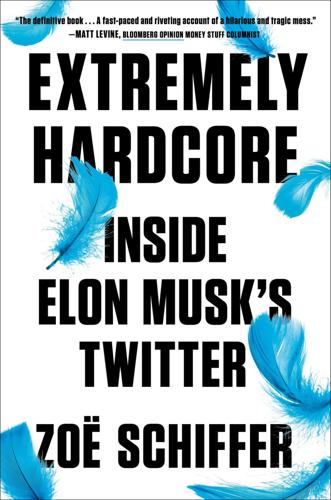
Extremely Hardcore: Inside Elon Musk's Twitter
by
Zoë Schiffer
Published 13 Feb 2024
Near the end of June, Musk launched a two-part offensive to stop data scrapers, first directing Twitter employees to temporarily block “logged out view.” The change would mean that only people with Twitter accounts could view tweets. “Logged out view” had a complicated history at Twitter. It was rumored to have played a part in the Arab Spring, allowing dissidents to view tweets without having to create a Twitter account and risk compromising their anonymity. But it was also an easy access point for people who wanted to scrape Twitter data. Once Twitter made the change, Google was temporarily blocked from crawling Twitter and serving up relevant tweets in search results—a move that could negatively impact Twitter’s traffic.
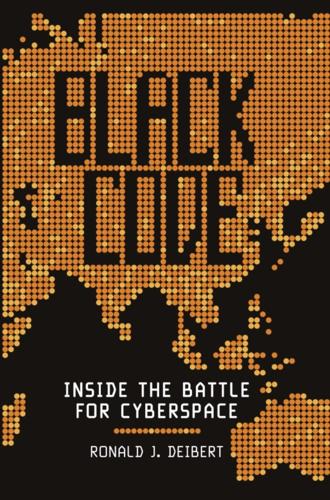
Black Code: Inside the Battle for Cyberspace
by
Ronald J. Deibert
Published 13 May 2013
At the same time, only roughly one-quarter of the developing world was online by the end of 2011 : that is, there is a still a huge percentage of the population yet to be connected there, and connect they will. Some of the fastest growth rates in social media usage are in the Middle East and North Africa, no doubt inspired by the prominent role played by Facebook, Twitter, et cetera during the Arab Spring. According to the Arab Social Media Report series, which counts users of social media in the Arab World, the number of Facebook users nearly tripled in one year, from 16 million in June 2011 to 45 million by June 2012. Egypt alone constitutes one-quarter of all Facebook users in the region, and Arabic is the fastest-growing language used to communicate on Twitter.
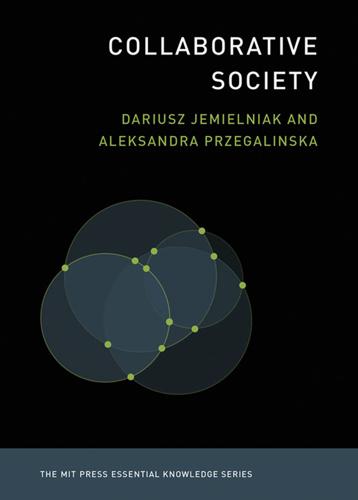
Collaborative Society
by
Dariusz Jemielniak
and
Aleksandra Przegalinska
Published 18 Feb 2020
Those who suggest that political participation will increase believe the internet will not only have a role in recruiting and communicating with others online but also offer lower-cost modes of participating for those who lack the time or motivation to engage otherwise. As Zeynep Tufekci claims in Twitter and Teargas, her book devoted to the Arab Spring, the ability to organize without organizations can speed things up at a greater scale within shorter timeframes, as there is no need to deal with the complexities of logistics when crowdfunding can do the job.37 On the other hand, Tufekci notices that all the tedious work performed during the pre-internet era accustomed people to the processes of collective decision-making and helped create the resilience all movements need to survive in the long run.
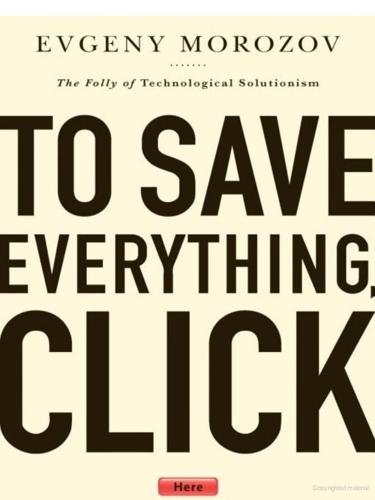
To Save Everything, Click Here: The Folly of Technological Solutionism
by
Evgeny Morozov
Published 15 Nov 2013
First, it would abstain from the highly emotional and polemical discussions over what “the Net” or even “social media” do to our brains, freedom, and dictators. This post-Internet approach is much more interested in the world of trash bins and parking meters in our mundane everyday lives than in the role of Twitter in the Arab Spring—and not because it’s parochial in outlook but because it doesn’t believe in the power of such ambitious and ambiguous questions. The role of Twitter’s algorithms in highlighting the #Jan25 hash tag, which brought some global attention to the cause of the protesters in Tahrir Square, on the other hand, is fair game.
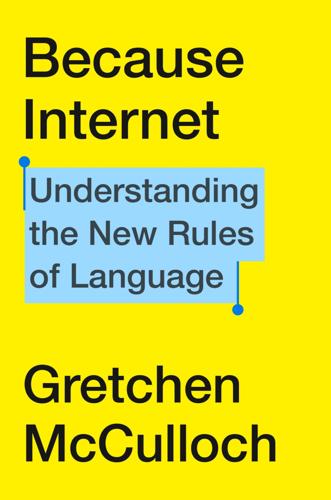
Because Internet: Understanding the New Rules of Language
by
Gretchen McCulloch
Published 22 Jul 2019
Oldenburg also points out how third places have been essential to forming the kinds of large, loose-knit social groups that are the core of new social movements, such as the agora in ancient Greek democracy, taverns around the American Revolution, and coffeeshops during the Age of Enlightenment, which parallels how Twitter was used for the Arab Spring or the Black Lives Matter protests. You can’t fit enough dissenters in your living room to make a revolution out of close ties alone: you need the larger, looser network of a third place. Third places have been hacked into existence from the very early stages of using computers to talk with each other.

The Perfect Weapon: War, Sabotage, and Fear in the Cyber Age
by
David E. Sanger
Published 18 Jun 2018
But while Washington was struggling to understand how to go on the offense against groups that were using social media as a way to organize attacks, Silicon Valley was still unable or unwilling to face the extent of the problem. For years the world’s most brilliant technologists convinced themselves that once they connected the world, a truer, global democracy would emerge. They rejoiced when Twitter and WhatsApp made the Arab Spring possible, and were convinced they had built the weapon that would tear down autocrats and beget new, more transparent democracies. But over time a harsher truth has emerged. Those same networks became ISIS’s most potent tool. They were exploited by Russian trolls and the political targeteers at Cambridge Analytica to manipulate voters.
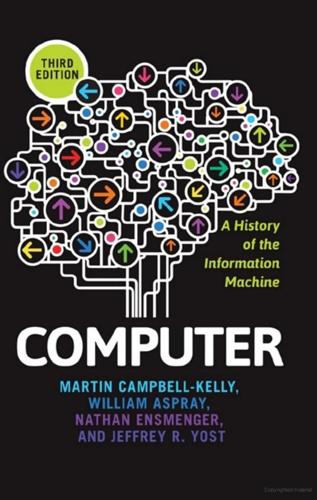
Computer: A History of the Information Machine
by
Martin Campbell-Kelly
and
Nathan Ensmenger
Published 29 Jul 2013
Closer analysis showed that only a small percentage of Iranians used Twitter (many tweets on the alleged election fraud originated from westerners), and that early coverage of the events instead “revealed intense Western longing for a world where information technology is the liberator rather than the oppressor.” Similar early characterizations by journalists and politicians highlighted the important role of Facebook and Twitter in the 2011 Arab Spring (protests throughout the Arab world that led to the overthrow of authoritarian regimes in Tunisia, Libya, and Egypt) and the 2011 international Occupy Movement (sit-in demonstrations against political and economic inequality and concentrated corporate power that began with an Occupy Wall Street protest in lower Manhattan’s Zuccotti Park).
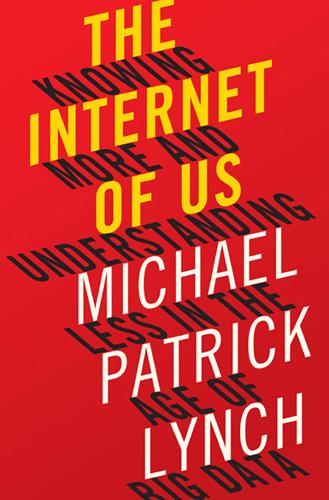
The Internet of Us: Knowing More and Understanding Less in the Age of Big Data
by
Michael P. Lynch
Published 21 Mar 2016
Over and above its inadvertent hilarity, this reminds us that the Internet is a revolutionary tool partly because it allows people to look for the truth on their own—independently of what governments, the scientific establishment or their own mother think is true. Perhaps the most striking example of this was the Arab Spring. As is now well documented, social media—specifically Twitter—not only allowed protesters to effectively organize, it gave them a way to let the world know about what was happening in their countries—countries that were ruthless in squashing regular media outlets. Since then, Twitter activism has only increased, and protest movements around the world use it to get their message out and to speak truth to power.
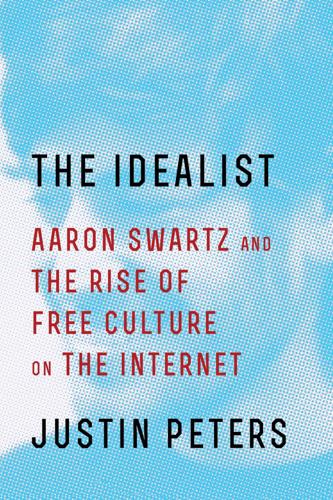
The Idealist: Aaron Swartz and the Rise of Free Culture on the Internet
by
Justin Peters
Published 11 Feb 2013
Now the Web encompassed everything from academic authors lobbying for open access to amateur pornographers uploading homemade smut to the website YouPorn. It was Project Gutenberg, and Eldritch Press, and a million tart gossip blogs, and a billion uninformed website comments. It was Tunisians and Egyptians using Twitter to coordinate protests during the Arab Spring; it was Tunisians and Egyptians using Facebook to waste time at work. Decentralized by design, the Web was a tool that rapidly animated and disseminated ideas good, bad, and between. That most people seemed only to use it for banter and ephemera was no demerit; the medium’s discursiveness was a sign of its strength.
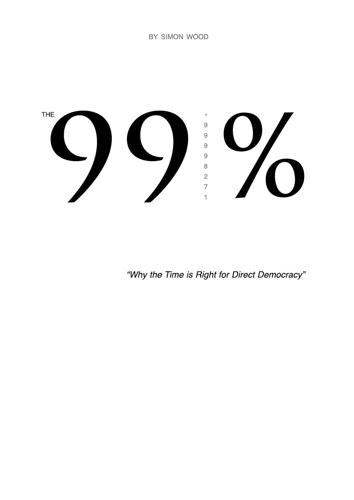
The 99.998271%
by
Simon Wood
Published 23 Apr 2012
With this in mind, the websites 23 of the World Health Organization and the International Atomic Energy Association were the best bets for accurate information as they both report to the UN and maintenance of credibility is more important to them than any ideological or profit concern. Is there a way to organize and harness the flow of accurate information from real experts to ordinary people directly? Mass social media like Twitter and Facebook have already proven their value to democracy as seen in the recent Arab Spring uprisings in which these media tools were used tactically by oppressed populations. Such was the threat to the establishments that attempts were even made to block these sites. There is no doubt that organized social media accessible to all is now the single biggest nightmare for every oppressor on the planet.

The Powerful and the Damned: Private Diaries in Turbulent Times
by
Lionel Barber
Published 5 Nov 2020
He and the board are grappling with how best to scale the business: how to ‘monetise’ 150 million users addicted to conversation in 140 characters. Twitter is a great source for breaking news but Costolo does not want to assume the responsibility of being a de facto publisher running a news organisation with journalists. No kidding. Twitter has become all the rage in the Middle East. The Arab Spring has helped, though something called WhatsApp may have even greater convening power, through encrypted messaging. Twitter promises anonymity but that carries a price in abuse, vitriol and the posting of violent images because basically the company does not employ a filter. The mainstream media like newspapers and TV are often criticised as ‘gatekeepers’ but at least we are committed to general standards of accuracy and providing some context to our reporting.
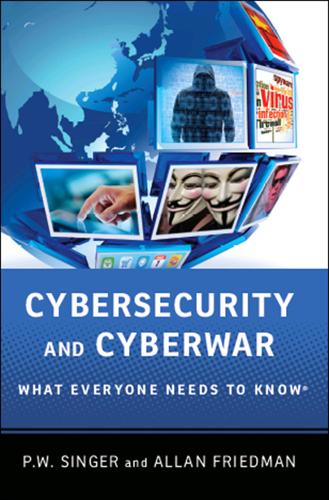
Cybersecurity: What Everyone Needs to Know
by
P. W. Singer
and
Allan Friedman
Published 3 Jan 2014
But, in turn, several of the SHAC hactivists were convicted for various crimes, including Internet stalking and using their websites to incite violence. But no one should think that hactivism is solely antibusiness. Recently, private firms have grown more involved in various hacktivist endeavors. For example, during the 2011 “Arab Spring” popular uprisings, firms like Google, Twitter, and Skype provided technical support to protesters and various workarounds to the government Internet censorship. When the Egyptian government tried to shut down Internet access during the mass protests, the firms provided a service called “Speak to Tweet,” whereby voicemail messages left by phone were converted to text tweets and downloadable audio files, so that news could still get out.
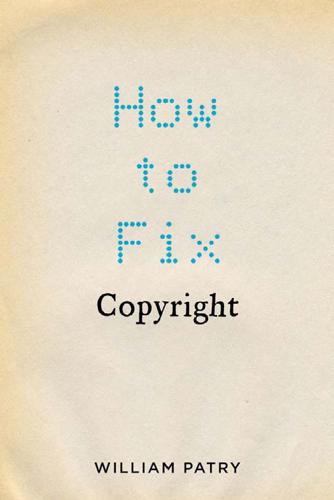
How to Fix Copyright
by
William Patry
Published 3 Jan 2012
This expansion came as a result of changes in the larger online news environment, and includes the integration of video, images, and social media. As a result of these changes and the vast expansion of individuals becoming both participants and reporters in critical events (think of the 2011 “Arab Spring” and the role played by Facebook and Twitter), consumers demand more news and faster. News organizations have to respond to these changes or be left behind. There are two ways to get to a news company’s website. The first way is for the news company to make its site attractive so that people come there as a destination site, and then stay there.

Character Limit: How Elon Musk Destroyed Twitter
by
Kate Conger
and
Ryan Mac
Published 17 Sep 2024
In 2009, Iranians flocked to Twitter to protest their country’s presidential election, cementing the company’s reputation as an online haven for free speech. Twitter became the fastest-growing website that year, skyrocketing from 1.2 million visitors in May 2008 to 18.2 million in May 2009. Williams, Stone, and Twitter’s other leaders took a permissive approach, and the service became fundamental in the Arab Spring as protesters across the Middle East used Twitter and Facebook to protest their governments and organize themselves politically, toppling dictatorships across the region. The company occasionally took down illegal content, like child exploitation material. But in most cases, Twitter stuck to its maximalist approach to speech.
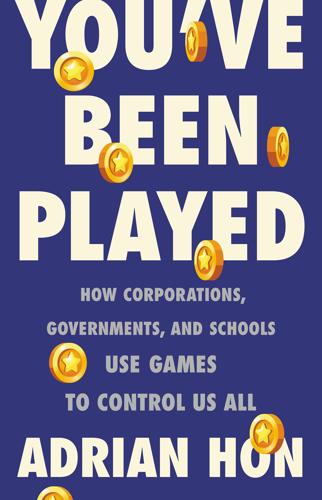
You've Been Played: How Corporations, Governments, and Schools Use Games to Control Us All
by
Adrian Hon
Published 14 Sep 2022
The One Laptop per Child (OLPC) initiative, born in 2005, aimed to disrupt education “for all kids—especially those in developing nations” by means of a one-hundred-dollar laptop.24 A few years later, antiregime protests in Iran were dubbed as the “Twitter Revolution” in the press, and academics would credit Facebook for mobilising activists and coordinating protests during the Arab Spring uprisings.25 The internet and social media seemed like unmitigated goods, with any downsides so minor as to be barely worth consideration. As for the upsides, the sky was the limit—after all, technology and games had already helped win the US presidency.
…
“Annan Presents Prototype $100 Laptop at World Summit on Information Society,” MIT News, Massachusetts Institute of Technology, November 16, 2005, https://news.mit.edu/2005/laptop-1116. 25. “Iran and the ‘Twitter Revolution,’” PEJ New Media Index, Pew Research Center, June 25, 2009, www.pewresearch.org/journalism/2009/06/25/iran-and-twitter-revolution; Catherine O’Donnell, “New Study Quantifies Use of Social Media in Arab Spring,” UW News, University of Washington, September 12, 2011, www.washington.edu/news/2011/09/12/new-study-quantifies-use-of-social-media-in-arab-spring. 26. Jose Antonio Vargas, “Obama Raised Half a Billion Online,” The Clickocracy, Washington Post, November 20, 2008, http://voices.washingtonpost.com/44/2008/11/20/obama_raised_half_a_billion_on.html. 27.

City Squares: Eighteen Writers on the Spirit and Significance of Squares Around the World
by
Catie Marron
Published 11 Apr 2016
“Replies between like-minded individuals strengthen group identity whereas replies between different-minded individuals reinforce ingroup and outgroup affiliation,” Yardi and boyd observed. In early 2013, a group of computer scientists based at the Qatar Computer Research Institute in Doha studied how Twitter was affecting political debate in Egypt in the aftermath of the Arab Spring.† After collecting seventeen million tweets dispatched between the summers of 2012 and 2013, they concluded that the different “Islamist” or “secular” groups were often polarized—but still bumped into each other online, as a result of hashtags. What was really interesting was that the level of polarization seen on Twitter tended to foreshadow what was happening in the “real” world: When political fighting broke out on the streets, it went hand in hand with growing fragmentation of the Twitter debate.
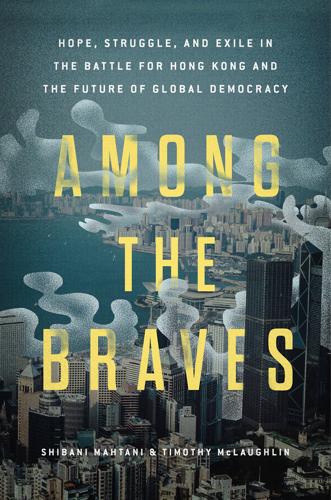
Among the Braves: Hope, Struggle, and Exile in the Battle for Hong Kong and the Future of Global Democracy
by
Shibani Mahtani
and
Timothy McLaughlin
Published 7 Nov 2023
They hoped he would continue in the vein of his predecessor, Hu Jintao, who at least partially opened his country to the world when Beijing hosted the 2008 Olympics. In 1985 Xi had even visited Muscatine, Iowa, on an agricultural study mission and befriended small-town Americans. At the time of Xi’s ascendance, social media networks such as Twitter, which helped play a part in the Arab Spring, were still banned, but China’s own social media use was growing. Notably, the microblog Weibo provided users with a new and slightly less restricted forum to air their grievances. Nicholas Kristof, who became a New York Times columnist after winning a Pulitzer for his coverage of the Tiananmen Square crackdown, predicted in 2013 that Xi Jinping would “spearhead a resurgence of economic reform, and probably some political easing as well.”1 Following this thinking, perhaps Xi Jinping would usher in universal suffrage in Hong Kong.
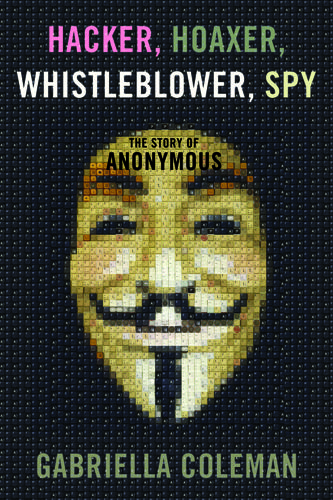
Hacker, Hoaxer, Whistleblower, Spy: The Story of Anonymous
by
Gabriella Coleman
Published 4 Nov 2014
Ibrahim Saleh “WikiLeaks and the Arab Spring: The Twists and Turns of Media, Culture, and Power,” Beyond WikiLeaks: Implications for the Future of Communications, Journalism and Society (New York: Palgrave Macmillan, 2013), 237. 6. WikiLeaks, “Cable: 09TUNIS516-a,” wikileaks.org, last accessed June 5, 2014, available at https://www.wikileaks.org/plusd/cables/ 09TUNIS516_a.html. 7. John Pollock, “How Egyptian and Tunisian youth hacked the Arab Spring,” technologyreview.com, Aug. 23, 2011. 8. See twitter.com/TAKRIZ, last accessed June 5, 2014. 9. “Tunisia suicide protester Mohammed Bouazizi dies,” bbc.com, Jan. 5, 2011. 10. “Thousands of Tunisia lawyers strike,” aljazeera.com, Jan. 6, 2011. 11. Tarek Amara, “Tunisian government says two killed in clashes,” reuters.com, Jan. 9, 2011. 12.
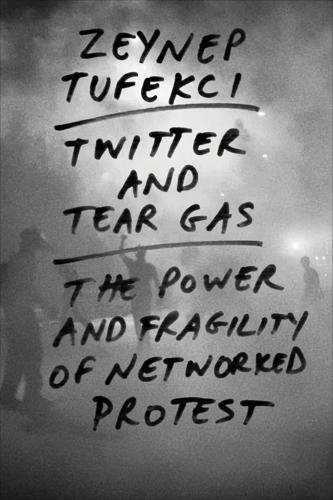
Twitter and Tear Gas: The Power and Fragility of Networked Protest
by
Zeynep Tufekci
Published 14 May 2017
Zeynep Tufekci and David Talbot, “A Leading Voice of the Egyptian Revolution Says Social Media Failed to Sustain the Movement and Talks about What Comes Next,” MIT Technology Review, April 16, 2016, https://www.technologyreview.com/s/601241/remaking-social-media-for-the-next-revolution/. 28. Mahmoud Salem, “You Can’t Stop the Signal,” World Policy Journal 31, no. 3 (2014): 34–40. Also see Marc Lynch, “Twitter Devolutions: How Social Media Is Hurting the Arab Spring,” Foreign Policy 7 (2013). 29. McAdam, “Tactical Innovation and the Pace of Insurgency.” Chapter 4. Movement Cultures 1. Paolo Gerbaudo, Tweets and the Streets: Social Media and Contemporary Activism (London: Pluto Press, 2012), and “The Indignant Citizen: Anti-Austerity Movements in Southern Europe and the Anti-Oligarchic Reclaiming of Citizenship,” Social Movement Studies 16, no. 1 (2017): 36–50. 2.
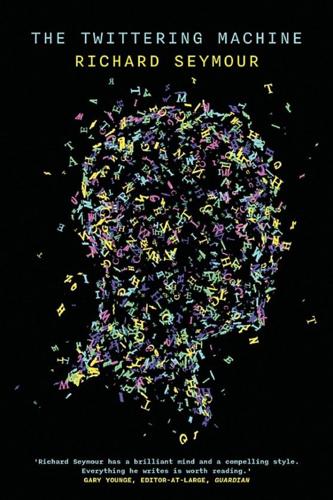
The Twittering Machine
by
Richard Seymour
Published 20 Aug 2019
On Ask.fm, another recruiter answered questions about his favourite desert, his beard, life in the battle. Images circulated of jihadists cuddling kittens, eating Snickers, playing video games, beheading their enemies.38 Five years after the Iranian Green Movement and three years after the ‘Arab Spring’ birthed such a brief reprise of cyber-utopianism, here was a ‘Twitter revolution’ that was actually in the middle of taking power. Here was a makeshift theocratic state, of all things, assembled with the logic of the swarm, occupying and keeping public space. Here was a right-wing, networked social movement, a reactionary guerrilla campaign, a band of mercenary adventurers, a brand, a hashtag, which had fully mastered the idiom of the platforms.
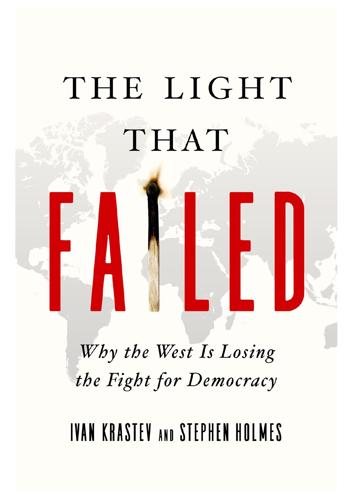
The Light That Failed: A Reckoning
by
Ivan Krastev
and
Stephen Holmes
Published 31 Oct 2019
The global spread of democracy signals not the liberation of the enlightened masses from elite domination but the manipulation of the masses by dark forces operating behind the scenes. His efforts have been abetted by radically changing perceptions of the role of social media in politics. If, in the initial euphoric days of the Arab Spring, social media were seen as ‘liberation technologies’103 and Facebook, Google and Twitter were signs of the coming democratic future of the world, these same social media are now universally associated with post-truth fragmentation, polarization and the coming end of democracy. Post-communist Russia illustrates how a handful of politically unaccountable and self-enriching rulers have, despite internal rivalries, managed to stay atop the country’s fragmented society without resorting to historically significant levels of mass violence.
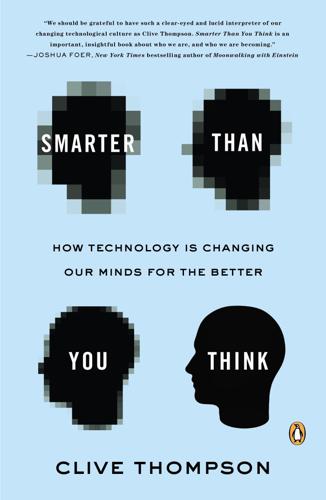
Smarter Than You Think: How Technology Is Changing Our Minds for the Better
by
Clive Thompson
Published 11 Sep 2013
See also cognition conversational thinkers, 11 Thomas, Dorothy, 58–60 Thomas, Douglas, 195 Thordarson, Kami, 176–78, 181 thoughtcasting, 222 Threadless, 169 3-D design, 111–13 benefits of, 112–13 3-D printers, 111–13 3-D scans, 113 Tiananmen Square rebellion, 271 Timehop, 39, 140 time-lapse video, 99–100 tip-of-the-tongue, 115–16 TiVo, 96 Topalov, Veselin, 3–4 TotalRecall, 19–23, 26 transactive memory, 124–31 benefits of, 128 collaborative inhibition, 131 human/machine collaboration, 126–31, 138–44 of married couples, 124–26, 134 Trivedi, Aseem, 275–76 Tufekci, Zeynep, 214, 258, 267 Tufte, Edward, 93 tummeling, 79–80 Tunisia, Arab Spring, 257 Twain, Mark, 224 Twenge, Jean, 221 Twiddler, 138 Twitter. See also social networks and ambient awareness, 210–44 characters limit, benefits of, 76 hashtag, development of, 65–66 learning digital etiquette on, 188 politics, exposure to, 262–63 size of following and retweets, 234–35 writing on, daily volume, 47 Two Sigma phenomenon, 177 Usenet, 149 Ushahidi, 62–63, 265–66 U.S.
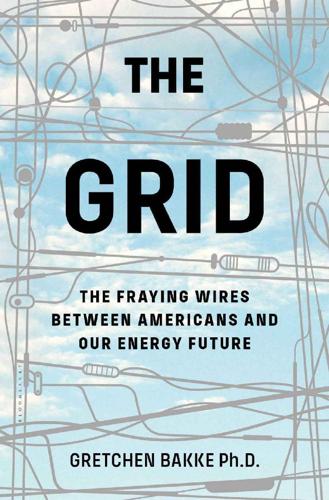
The Grid: The Fraying Wires Between Americans and Our Energy Future
by
Gretchen Bakke
Published 25 Jul 2016
fossil fuels for making power: Mitchell (2011) and Daniel Yergin, The Prize: The Epic Quest for Oil, Money & Power (New York: Simon and Schuster, 2011). “filled with passengers”: Fox-Penner (2014), xiii. to bring down governments: Most famously, ordinary Egyptians and Tunisians used Facebook and Twitter to help coordinate their respective versions of the Arab Spring in 2011. “don’t want power lines.”: Chris Kahn and Eric Tucker, “Easy Fix Eludes Power Outage Problems in U.S.,” Yahoo! Finance, July 4, 2012, http://finance.yahoo.com/news/easy-fix-eludes-power-outage-problems-us-220940392.html. “and out come fuels”: David Rotman, “Praying for an Energy Miracle,” MIT Technology Review, February 22, 2011, http://www.technologyreview.com/featuredstory/422836/praying-for-an-energy-miracle/.
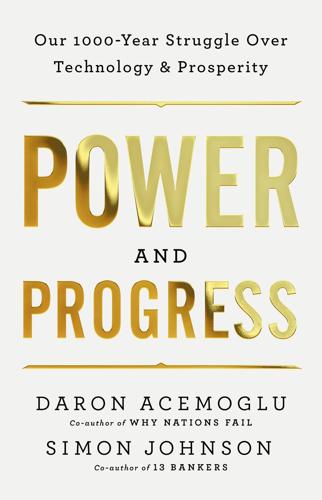
Power and Progress: Our Thousand-Year Struggle Over Technology and Prosperity
by
Daron Acemoglu
and
Simon Johnson
Published 15 May 2023
As messages moved from one user to another, more than a million people arrived in downtown Manila to object to congresspeople’s complicity in Estrada’s corruption and crimes. After the capital was brought to a standstill, the legislators reversed their decision, and Estrada was impeached. Less than a decade later, it was social media’s turn. Facebook and Twitter were used by protesters during the Arab Spring, helping to topple long-ruling autocrats Zine El Abidine Ben Ali in Tunisia and Hosni Mubarak in Egypt. One of the leaders of the Egyptian protests and a computer engineer at Google, Wael Ghonim, summarized both the mood among some of the protesters and the optimism in the tech world when he said in an interview: “I want to meet Mark Zuckerberg one day and thank him, actually.
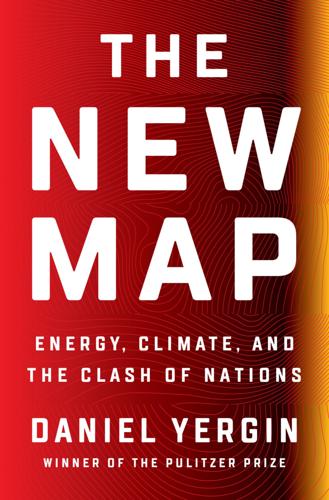
The New Map: Energy, Climate, and the Clash of Nations
by
Daniel Yergin
Published 14 Sep 2020
Gates was on the National Security Council in 1979 when, in his view, the United States had pulled the rug out from under the shah, with the expectation that a democratic revolution would follow. The result instead was the rise of the Ayatollah Khomeini, U.S. diplomats held hostage for 444 days, and the implacably hostile Islamic Republic. The more junior advisers around the president vigorously disagreed. They were caught up by the excitement of the Arab Spring and felt an affinity for the Facebook and Twitter generation. Sure of the power and sweep of Obama’s oratory, they urged the president to not hesitate in pushing Mubarak aside. They told Obama that he should be “on the right side of history.” “But how can anyone know which is the ‘right’ or ‘wrong’ side of history,” Gates later wrote, “when nearly all revolutions, begun with hope and idealism, culminate in repression and bloodshed?
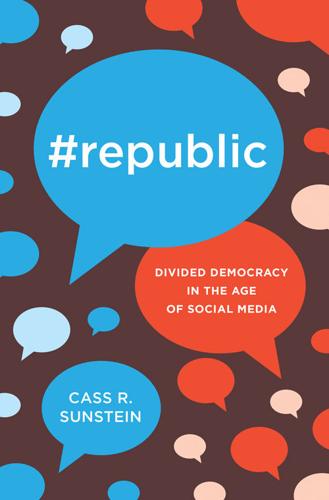
#Republic: Divided Democracy in the Age of Social Media
by
Cass R. Sunstein
Published 7 Mar 2017
If public officials are engaging in repression in a local city, you can use Facebook, Twitter, or Instagram to get the news out immediately. Individual citizens can serve as reporters. They can expose misconduct, corruption, or suffering—and increase the likelihood that something will be done about it. During the Arab Spring, one Egyptian protester tweeted, “We use Facebook to schedule the protests, Twitter to coordinate, and YouTube to tell the world.”3 Social media publicize developments in real time, and they let the world know what is happening. Sometimes Facebook and Twitter are the best places to look if you want to know about some disaster, discovery, or coup.
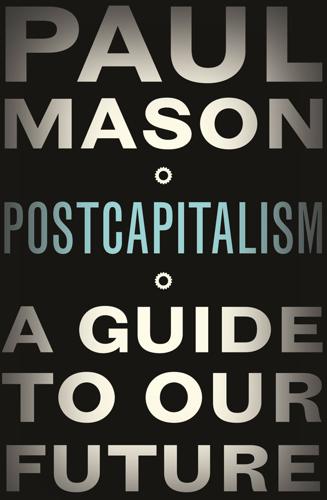
Postcapitalism: A Guide to Our Future
by
Paul Mason
Published 29 Jul 2015
Opposition movements have hit the streets determined to avoid the power structures and abuses that hierarchies bring, and to immunize themselves against the mistakes of the twentieth-century left. The values, voices and morals of the networked generation were so obvious in these revolts that, from the Spanish indignados to the Arab Spring, the media at first believed they had been caused by Facebook and Twitter. Then, in 2013–14, revolts broke out in some of the most iconic developing economies: Turkey, Brazil, India, Ukraine and Hong Kong. Millions took to the streets, again with the networked generation in the lead – but now their grievances went to the heart of what is broken in modern capitalism.
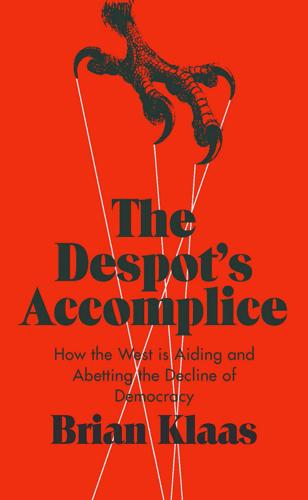
The Despot's Accomplice: How the West Is Aiding and Abetting the Decline of Democracy
by
Brian Klaas
Published 15 Mar 2017
Even with heroic efforts to the contrary, digital information flows are difficult to stop— and knowledge and social coordination can be extremely powerful when it comes to standing up to despots. â•… But the corresponding backlash by authoritarian rulers, who also have learned a thing or two about digital communication, is undermining naïve predictions made across the Western world in the wake of the Arab Spring. Everyone seemed to think that it was only a matter of time before Twitter revolutions began toppling despots left and right. It was a return to the notion, initially articulated by Francis Fukuyama, that we had reached the democratic endpoint, the “End of History”4—but this time the end would be announced in 140 characters or fewer.
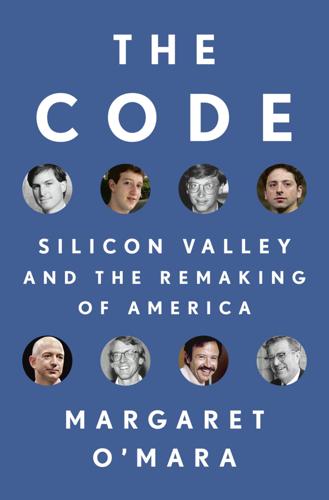
The Code: Silicon Valley and the Remaking of America
by
Margaret O'Mara
Published 8 Jul 2019
It turned everyone into a diarist, a philosopher, an activist—even if that activism was merely clicking a “like” button. Both Facebook and Twitter, a social platform originally designed for 140-word “microblog” status updates, became powerful mechanisms for political organizing and communication during the Arab Spring and Occupy Wall Street movements of 2011. Twitter swiftly gained a disproportionate number of African American users and “Black Twitter” became a powerful platform for both civic activism and cultural exchange; the most powerful racial justice movement of the century’s second decade, Black Lives Matter, began as a Twitter hashtag.
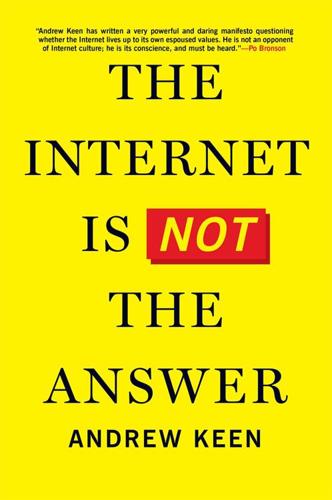
The Internet Is Not the Answer
by
Andrew Keen
Published 5 Jan 2015
“As designers, investors, commentators, we need to seriously ask ourselves whether some of these systems are legitimate and worthy,” Marc Andresseen tweeted in March 2014. “. . . not from an investment return point of view, but from an ethical and moral point of view.”47 Anonymous or not, the people formerly known as the audience are not only angry; some of them are also propagandists of terror and genocide. After the 2010–11 Arab Spring, many Internet evangelists—such as the Google executive and author of Revolution 2.0 Wael Ghonim—argued that social media networks like Facebook and Twitter were undermining the old autocracies in the Middle East and empowering the people. But as the Arab Spring has degenerated into brutal religious and ethnic civil wars in Syria and Iraq, and the reestablishment of military dictatorship in Ghonim’s own Egypt, social media has been leveraged in a much more corrosive way. “By a geopolitical fluke,” notes the Financial Times’ David Gardner, “the cold war ended just as technology developed unique power to encourage global tribes.”48 Twitter and Facebook are thus being used by both Sunni and Shiite radicals to spread their doctrinal message and find recruits in what the Financial Times calls “Jihad by social media.”49 In June 2014, for example, the Islamic State in Iraq and Syria (ISIS) hijacked the soccer World Cup hashtags, used its Facebook accounts as “a death-threat generator,” and broadcast its atrocities on YouTube and Twitter, where it posted a video of a beheading with the message: “This is our ball.
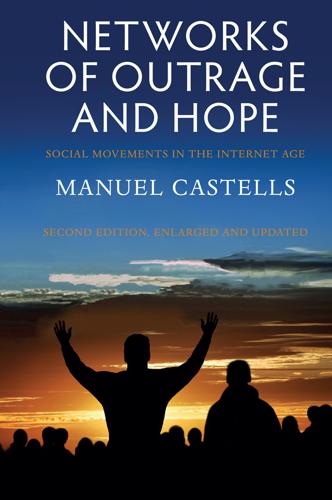
Networks of Outrage and Hope: Social Movements in the Internet Age
by
Manuel Castells
Published 19 Aug 2012
In the first few weeks of protest in each country, the generation of people in the streets – and its leadership – was clearly not interested in the three major models of political Islam … Instead, these mostly cosmopolitan and younger generations of mobilizers felt disenfranchised by their political systems, saw vast losses in the poor management of national economies and development, and most importantly, a consistent and widely shared narrative of common grievances – a narrative which they learned about from each other and co-wrote on the digital spaces of political writing and venting on blogs, videos shared on Facebook and Twitter, and comment board discussions on international news sites like Al Jazeera and the BBC. The Arab Spring is historically unique because it is the first set of political upheavals in which all of these things [alienation from the state, consensus among the population in the protest, defence of the movement by the international public opinion] were digitally mediated … It is true that Facebook and Twitter did not cause revolutions, but it is silly to ignore the fact that the careful and strategic uses of digital media to network regional publics, along with international support networks, have empowered activists in new ways that have led to some of the largest protests this decade in Iran, the temporary lifting of the Egyptian blockade on Gaza, and the popular movements that ended the decades long rule of Mubarak and Ben Ali.
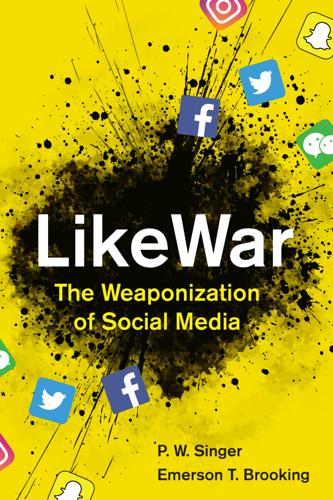
Likewar: The Weaponization of Social Media
by
Peter Warren Singer
and
Emerson T. Brooking
Published 15 Mar 2018
See TCP/IP framework transparency bin Laden operation, 53–55 crowdsourcing and, 65, 67 democracy, 211 Facebook, 46 lack of, 221, 268 Panama Papers, 97 reports on, 232 trend, 141 TriCk (hacker), 149 trolls and trolling anti-Semitism, 238 vs. democracy, 211 effect of, 165 free speech, 228–29 moderation of, 246 origin of, 163 Pepe meme, 187–93 purpose of, 164–65 Russian government, 111–14, 204, 208 Trump as, 174–75 Trump, Donald authenticity, 168–69 botnets, 143–44 on censorship, 236 digital history of, 60–61 early tweets of, 1–4 fake news, 120, 131 Flynn and, 81 hate crimes, 239 inundation, 173–74 Lyrebird, 253 Pepe meme, 186–93 presidential campaign, 173–78, 240 propaganda, 125 retweets, 129, 175 simplicity, 158 threats made by, 15 Twitter and, 49 Trump, Donald, Jr., 112 Trump Entertainment Resorts, 2 Trumpbot overlord, 143–44 “trustworthiness” score, 102 truth, 116 content moderation, 225, 233–34, 244–48 in early newspapers, 28–29 fight over. See propaganda vs. virality, 119–20 Tufekci, Zeynep, 270 Tumblr, 194 Tunisia, 84–85, 213 Turkey, 90–95, 185 Twitter ability to incite violence, 201 activism, 86, 214–16 Arab Spring, 126 authenticity, 166 bin Laden operation, 53–55 Boston Marathon Bombing, 66 botnets, 139, 145–46 censorship, 231, 237, 239 content creation, 58, 247 Duterte, emoji for, 15 extremist groups, 170 fake accounts and news, 131, 142, 143–44 Flynn and, 81 GVA Dictator Alert, 75–76 honeypot, 115 Iranian election (2009), 84 Israel, 199 metadata, 57 Mexican cartels, 69–70 Mosul, attack of, 4–7 Mumbai massacre, 62 origin of, 1–2, 19, 219 profit, 243 regulation, 228–29, 230 Russia and, 111–14, 138–47 smartphones, 48–49 terrorism, 65, 149, 235–36 transparency reports, 232 Trump and, 15, 168–69, 173–74, 175 Turkish coup, 90–95 volunteers, 214 war in real time, 193, 194 Twitterbomb, 142 U Ukraine election safety, 264 flight MH17, 72, 73–74 internet army, 211 vs.
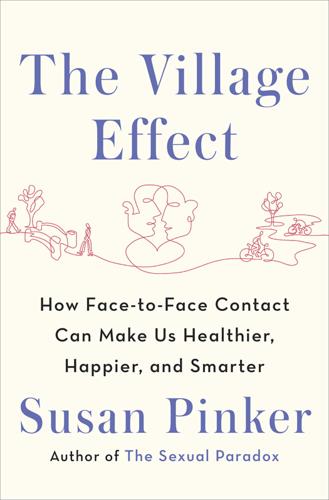
The Village Effect: How Face-To-Face Contact Can Make Us Healthier, Happier, and Smarter
by
Susan Pinker
Published 30 Sep 2013
And adolescents who say that their families understand them, pay attention to their concerns, and have fun with them are more likely to delay intercourse, regardless of religiosity.”31 Being There As we’ve seen, the process of social contagion begins with mimicry: sensing what other people are doing in real time and unconsciously doing it too. Like the chimps who “aped” their tree-signaling buddies, you have to be in close proximity for synchrony to happen. Online networks can mobilize people’s votes and political protests can spread via Twitter and Facebook, as was the case during the astounding transformations of the Arab Spring and the Occupy movement. But even if the images and invitations to participate were transmitted electronically, the protests happened face-to-face. Anyone who saw the mobs, the tent cities, and the riot police knows that the expression “You had to be there” still holds.
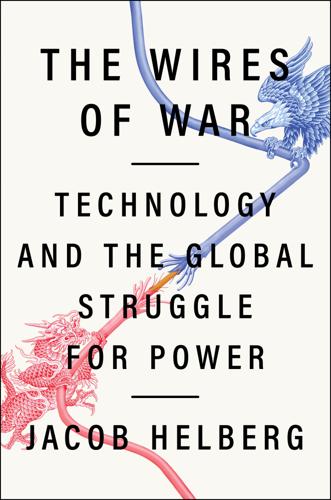
The Wires of War: Technology and the Global Struggle for Power
by
Jacob Helberg
Published 11 Oct 2021
–Chinese relations and, xvi–xviii SolarWorld Americas, 43–44 Soldatov, Andrei, 28–29 Sonoma wine country wildfires, 76–77 Sony Pictures, 46–47, 61 Soviet Union, 25–29, 36, 51–52, 73, 146, 157, 165, 180, 197, 200, 212, 232–33, 249, 266, 270 collapse of, 25–27, 31–32, 39 U.S. relations with, xii–xiii Sputnik (news agency), 71, 82, 233–34 Skripal case and, 73–75 Sputnik (satellite), 165, 232–34, 245 Stamos, Alex, 80, 169 State Department, U.S., xxi, 7–8, 12, 38, 40, 83, 123, 142, 152n, 185, 198–99, 207–8, 212, 236–37, 269 Stein, Jill, 58–59 Stephens, Trae, 181 Steube, Greg, 160, 174 Stevens, Ted, 88–89, 102, 173 Stewart, Jon, 88–89 Stoltenberg, Jens, 211 Stowell, Jayne, 103 strengthening Western techno–bloc, 210–20 Strumpf, Dan, 124 Sullivan, Andrew, 38 Sullivan, Jake, xii–xiii, 33 Sulmeyer, Michael, 30 Supermicro, 100–101 supply chains, 19, 95–101, 269 China and, xviii, 95–100, 112, 123, 157, 202, 212–13, 215–17, 238–40, 250 competitiveness investing and, 237–40 decoupling of, 157, 213–17 strengthening Western techno–bloc and, 212–17 Susskind, Jamie, 75 Syria, 58, 62, 74, 138, 162, 203, 247 Taiwan, 33, 82, 97, 115, 134, 198, 204, 216, 222–24 Taiwan Semiconductor Manufacturing Company (TSMC), 222–23, 240–41 Team Telecom, 106, 209 tech role reimagining, 250–59 telecommunications, 146, 190, 209 China and, xix, 13, 43, 90–94, 101, 104–11, 116–17, 122–24, 127–29, 145, 156, 192n, 217, 219, 265–66 cybersecurity and, 22, 25, 113–14, 116–17, 120, 212–13 digital citizenship strengthening and, 265–66 5G and, 118, 122 infrastructure of, 88–94, 103–11, 123, 128–29, 220 strengthening Western techno–bloc and, 217–19 Tencent, 133–35, 257 Tenenbaum, Ehud “The Analyzer,” 24 Terman, Frederick, 164 Thiel, Peter, 4, 16, 175 Thomas, Ben, 187 Tibet, xviii, 111, 152 TikTok, 21, 181, 190 China and, xvi–xvii, 129, 147, 185–88, 194, 225 transmission control protocol/Internet protocol (TCP/IP), 21–22, 116 Truman, Harry, 211 Trump, Donald J., 35, 55, 61, 123, 136, 141, 148, 188, 209, 216, 223, 265, 269 competitiveness investing and, 236–37, 244–45, 247–48 and elections of 2016, xi, 10–12, 16–17, 49, 58, 60, 67, 70, 153–54, 170 and elections of 2020, 84, 86 Huawei and, 120–22 Silicon Valley–Washington relations and, 170–71, 175 tweeting of, 17, 66, 170–71 U.S.–Chinese relations and, xii, 11, 33, 205 Trust and Safety Agency, 215, 250–51 Tufekci, Zeynep, 55 Tunisia, 37–38 Twain, Mark, 53–54 Twitter, xi, 6, 28, 49, 64, 68, 84, 128, 162, 172, 193, 201, 227 Arab Spring and, 37–38 deepfakes and, 138–39 digital citizenship strengthening and, 260, 262–64 digital Maginot lines and, 82–83 and elections of 2020, 85–87 fake news and, 17, 53, 55 information laundering and, 70–72 IRA disinformation and, 57–59 Silicon Valley–Washington relations and, 170–71, 174, 177, 251 tech role reimagining and, 251–52 Trump’s use of, 17, 66, 170–71 Ukraine, 12, 57, 65, 80 digital citizenship strengthening and, 259–60, 262 Russian invasion of, 27, 41–42, 141, 203 United Kingdom, xx, 21, 23, 32–33, 52–53, 57, 103–4, 113, 121, 155, 162, 183, 203, 205n, 214, 233, 248 Skripal case and, 72–75, 78 telecom infrastructure, 92–93, 107, 111 United Nations, 27, 39, 113–14, 148, 162 U.S.
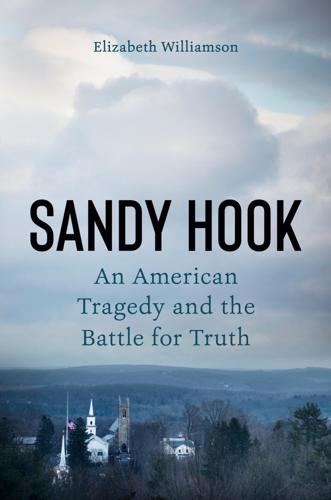
Sandy Hook: An American Tragedy and the Battle for Truth
by
Elizabeth Williamson
Published 8 Mar 2022
Mark Zuckerberg pivots to the social justice movements and marriages fostered by Facebook when asked about its role in enabling Russian election interference, the neo-Nazis gathering on Facebook groups, and the murders streamed on Facebook Live. While misinformation, menace, and calls to violence circulate among the hundreds of millions of videos viewed each day on Google’s YouTube, the company accepted plaudits for building “global community.”[13] Twitter publicly celebrated its role in linking activists during the pro-democracy Arab Spring protests and the nascent Black Lives Matter movement in the early 2010s while racist and misogynist attacks skyrocketed. “We suck at dealing with abuse and trolls on the platform and we’ve sucked at it for years,” former chief executive Dick Costolo wrote in an internal memo in 2015.[14] A year later, Charlie Warzel, then a senior tech writer for BuzzFeed, investigated Twitter’s abuse problem in an article titled “ ‘A Honeypot for Assholes’: Inside Twitter’s 10-Year Failure to Stop Harassment.”[15] Several women and people of color had left the platform in 2016, amid torrents of abuse and threats, including Leslie Jones, then at Saturday Night Live.
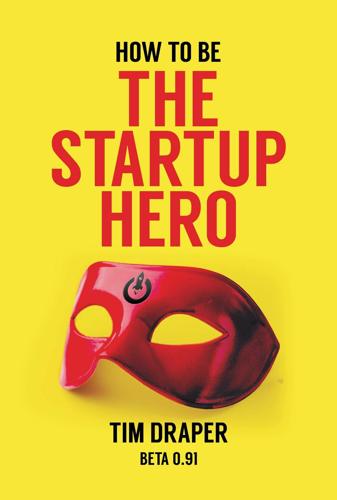
How to Be the Startup Hero: A Guide and Textbook for Entrepreneurs and Aspiring Entrepreneurs
by
Tim Draper
Published 18 Dec 2017
Corrupt government leads to corrupt people which leads to poverty. Honest open government leads to honest open people, freedom and wealth. Ukraine’s revolution built around texting led to other revolutions. After the Orange Revolution, Facebook and Twitter were instrumental to the successful overthrowing of corrupt governments in Tunisia and Egypt, in the so-called Arab Spring. Freedom and openness are spreading through viral marketing. The countries of the world are all connected now, and they have been put on notice that they need to perform for their constituents or they may have a viral revolution on their hands.
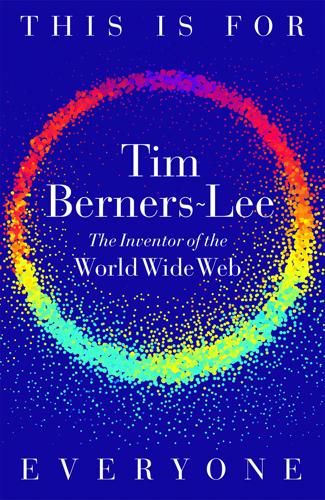
This Is for Everyone: The Captivating Memoir From the Inventor of the World Wide Web
by
Tim Berners-Lee
Published 8 Sep 2025
Human progress is not linear, but my sense is that it generally points in the correct direction. I remain optimistic that the web will continue to be a platform for democracy in this part of the world. But it depends how we use it – and what systems we build on it. • Many of the protesters in the Arab Spring were mobile-first – or often mobile-only – internet users. They weren’t accessing Facebook or Twitter directly through a browser, but instead through dedicated, downloadable apps on their phones. This sometimes led people to conclude that ‘the web’ was being replaced by the app marketplace. This wasn’t quite accurate. The browser was being superseded by the mobile apps, certainly, but the back-end infrastructure that serves the content to these apps still runs on HTTP.
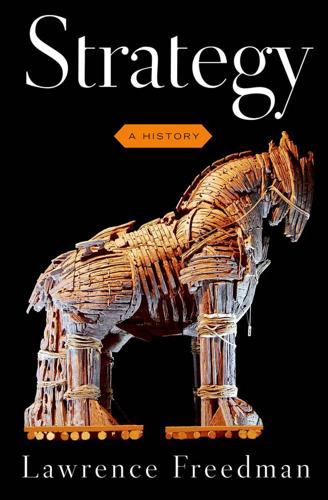
Strategy: A History
by
Lawrence Freedman
Published 31 Oct 2013
Even if more determined adversaries were prepared to mount substantial attacks, the result would likely be “mass disruption” rather than “mass destruction,” with inconvenience and disorientation more evident than terror and collapse.41 The use of social networking, such as Facebook and Twitter, during the early days of the Arab Spring of 2011 illustrated how swarming could leave governments uncertain about how to cope with a rapidly developing public opinion. Such tactics followed well-established principles from before the information age. Radical groups, especially during their early stages, were often based on loose networks of individuals.
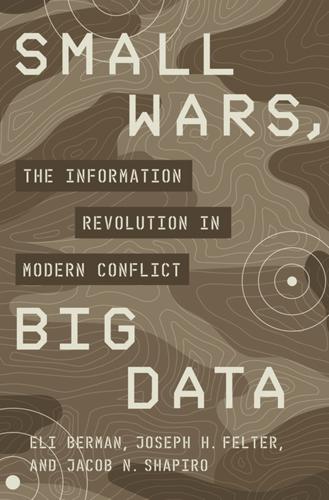
Small Wars, Big Data: The Information Revolution in Modern Conflict
by
Eli Berman
,
Joseph H. Felter
,
Jacob N. Shapiro
and
Vestal Mcintyre
Published 12 May 2018
“When cell phone coverage is present,” they wrote, “the likelihood of conflict occurrence is substantially higher than otherwise.”54 That finding seems consistent with findings from the Arab Spring uprisings of 2011. Philip Howard and Muzammil Hussain collected qualitative evidence on the role of technology in the Arab Spring and concluded that “the Internet, mobile phones, and social media such as Facebook and Twitter made the difference this time. Using these technologies, people interested in democracy could build extensive networks, create social capital, and organize political action with a speed and on a scale never seen before. Thanks to these technologies, virtual networks materialized in the streets.”55 Perhaps the most conspicuous response to ICT-fueled collective action came on 27 January 2011, at the height of protests in Tahrir Square, Cairo, when President Hosni Mubarak gave an unprecedented order that all mobile providers suspend service.56 This was not a new tactic in the Middle East.
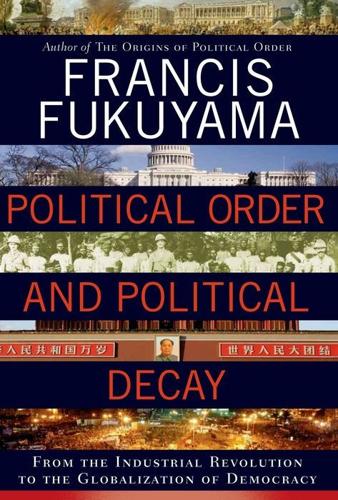
Political Order and Political Decay: From the Industrial Revolution to the Globalization of Democracy
by
Francis Fukuyama
Published 29 Sep 2014
It is hard to envision the democratic transitions that occurred in sub-Saharan Africa in the early 1990s absent the power of the images of the crumbling Berlin Wall that echoed around the world. Similarly, the timing of protests against autocratic regimes during the Arab Spring was driven by television stations like Al Jazeera and by Twitter and Facebook as much as by domestic causes. By the early twenty-first century, democracy has become truly globalized. Unfortunately, many of the mechanisms for the transmission of institutions across borders were much less gentle: through conquest, occupation, and often the physical enslavement or elimination of indigenous populations.
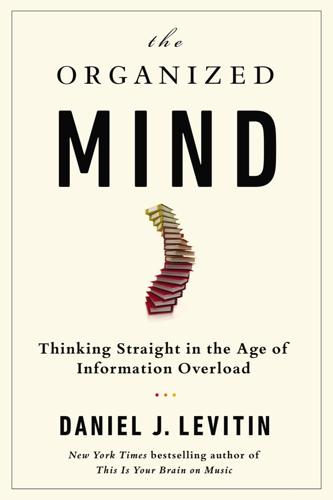
The Organized Mind: Thinking Straight in the Age of Information Overload
by
Daniel J. Levitin
Published 18 Aug 2014
TMZ ran the story of Michael Jackson’s death before anyone else because they were willing to publish the story based on less evidence than CNN or The New York Times. In that particular case, they turned out to be right, but it doesn’t always work out that way. During fast-breaking news events, like the Arab Spring, journalists aren’t always on site. Reports from regular citizens hit the Web through Twitter, Facebook, and blogs. These can be reliable sources of information, especially when considered as a collection of observations. Nonprofessional journalists—citizens who are swept up in a crisis—provide timely, firsthand accounts of events. But they don’t always distinguish in their reports what they’ve perceived firsthand from what they’ve simply heard through rumor or innuendo.
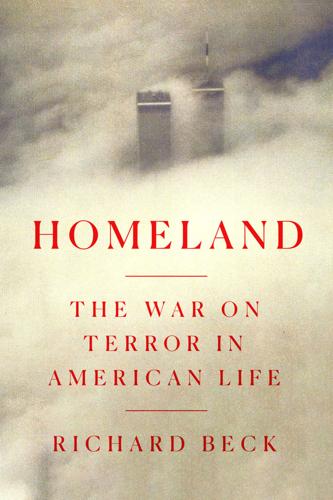
Homeland: The War on Terror in American Life
by
Richard Beck
Published 2 Sep 2024
Western journalists might have exaggerated the extent to which social media made the protests possible—they often ignored the years of political activity and organizing that preceded 2011—but the protesters themselves were happy to acknowledge that the internet was a useful tool. As one wrote, “We use Facebook to schedule the protests, Twitter to coordinate, and YouTube to tell the world.”[58] This is where the Arab Spring’s third impact on life in the United States comes into play. In the United States, young Americans who had recently graduated into the worst economic conditions in more than eighty years watched young people thousands of miles away risk their lives in the hope of bringing about a future worth the name.
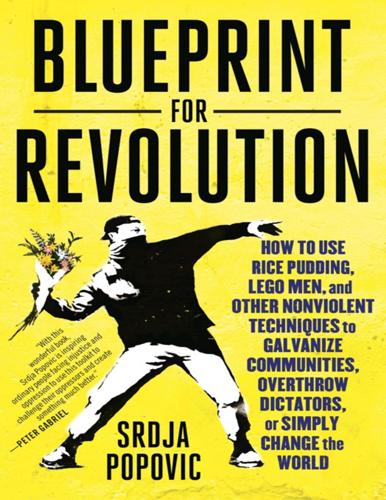
Blueprint for Revolution: How to Use Rice Pudding, Lego Men, and Other Nonviolent Techniques to Galvanize Communities, Overthrow Dictators, or Simply Change the World
by
Srdja Popovic
and
Matthew Miller
Published 3 Feb 2015
And while today we’re fortunate enough to have at our disposal amazing technologies that make it easy for anyone to hop right into the activist lifestyle—things like cellular phones, social networks, and omnipresent cameras—it’s important to remember that plenty of movements existed before those tools were even dreamed of, and plenty of causes that relied too heavily on technology have failed miserably. If you Google “Facebook and Twitter revolutions” you will see how the media have covered the last few years of protests—ranging from the Arab Spring to Occupy Wall Street—as if contemporary activism is just some new feature on a smartphone or a cool app to be downloaded. That’s why people like Turkey’s prime minister feel comfortable going on television and telling his people that the marches in the streets of Istanbul are little more than a ash mob organized through Twitter.
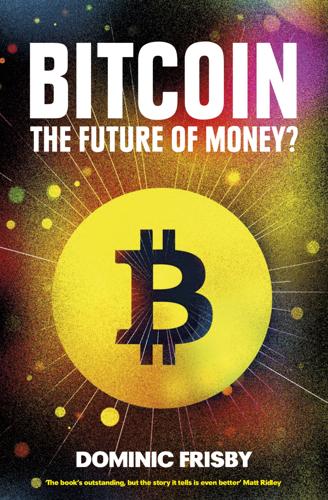
Bitcoin: The Future of Money?
by
Dominic Frisby
Published 1 Nov 2014
You have Bitmessage – a decentralized system of sending and receiving emails without Google or Hotmail or whoever your email service provider might be having access to your messages. Nobody can read them, except the people you send them to. You have Twister – like Twitter, but peer-to-peer and with no central body. It’s a much safer way to organize an Arab Spring or indulge in the kind of free speech that can get you into trouble. You can register ownership of financial assets and have contracts verified on a block chain. This has all sorts of implications for Wall Street, the City and the huge business models of share registrars and brokers.
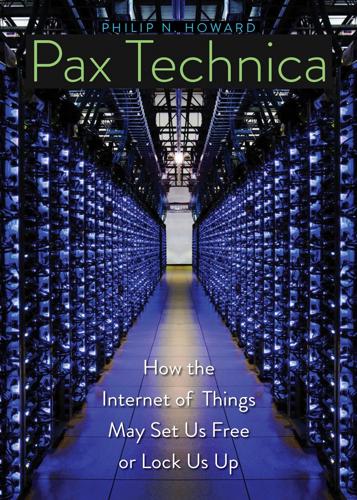
Pax Technica: How the Internet of Things May Set Us Free or Lock Us Up
by
Philip N. Howard
Published 27 Apr 2015
In Syria, mobile-phone and internet subscriptions continued to grow throughout the civil war, confirmation that in times of crisis people want more information.22 When the president of Turkey, Recep Erdoǧan, shut down his country’s Twitter networks in 2014, he drove up public interest in learning how to use Twitter to get around state interference. When the president of Egypt, Hosni Mubarak, shut down his country’s internet during the Arab Spring, he drove more Egyptians into the streets of Cairo and ultimately lost his job. The global spread of cellphone towers and wifiaccess points has been rapid. By 2015 there were almost 100,000 towers, a thousand cellular network companies, and well over a million wifiaccess points.23 When closed countries do open up, information-deprived communities clamor for internet access.
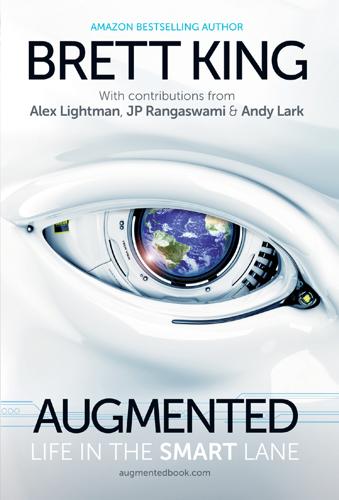
Augmented: Life in the Smart Lane
by
Brett King
Published 5 May 2016
Shifts of these magnitudes often bring incredible opportunities, jarring sociological adjustment and, on many occasions, even violence. The Internet, social media and smartphones brought us email, selfies, hashtags and YouTube, but they also brought us the Arab Spring, ISIS propaganda, Wikileaks, NSA’s PRISM programme and the global Occupy movement. Social media gave us Facebook and Twitter and arguably propelled Barak Obama to the presidency in 2008, but it has also allowed some of the most hateful and racist vilification in recent history to find a home. It has created cyberbullying that has left numerous victims in its wake and has exposed intimate details of both famous personalities and secret government agencies.
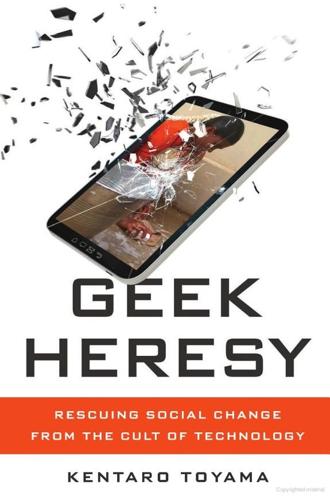
Geek Heresy: Rescuing Social Change From the Cult of Technology
by
Kentaro Toyama
Published 25 May 2015
See Technology and society Things Fall Apart (Achebe), 62–63 Thompson, John B., 75–76 Thought experiments failing company, 31 future learning machine, 54 Law of Amplification, 48–49 technology prediction, 52–53 Singer’s drowning child and variation, 212–213 wealth versus wisdom, 170–171 Toms Shoes, 84–87, 242(nn28,29,30) Transactional relationships, mentorship versus, 203–204 Transparency, governmental, 31–32. See also Democracy Tuggun, Isaac, 127–132, 215 Tunisia: Arab Spring, 32–33, 36–37, 62 Tunstall, Tricia, 270(n2), 273(n3) Turkle, Sherry, 40 Twenge, Jean, 262(n33) Twitter, 35–36, 51. See also Social media UNICEF, 193–194 Unilever Corporation, 83 Unintended consequences, 23, 55–56, 231(n27) United States American Revolution, 35, 232(n45) compassionate class, 189 creative class, 186 credit and debt, 60–61 digital divide, 9–10, 47–49 educational technology, x, 9–14, 114–121 electricity usage, 230(n16) entrepreneurial spirit, 177–178 inequality, x–xi, 47–49, 116–118 Internet censorship and spying, 52 modernization, 266–267(n11) racial and gender equality, 63–64 role model for developing countries, 215–216 women’s status, 178 United States Agency for International Development (USAID), 86, 272(n12) Universal suffrage, 63 Untouchables, India’s, 64 Urban migration, 268(n21) Uruguay: One Laptop Per Child, 8 Usury, 58.